Limnology
Home
People and Pets Page.html
Search Site by Topic.html
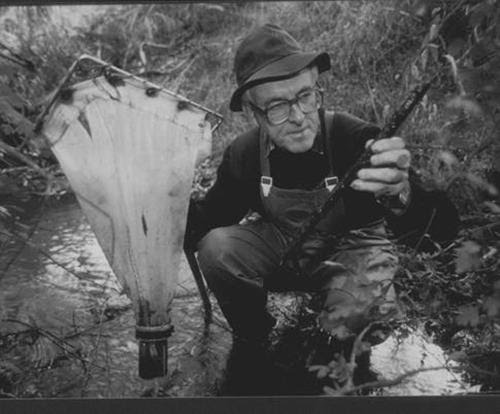
University of Adelaide
Adelaide, South Australia
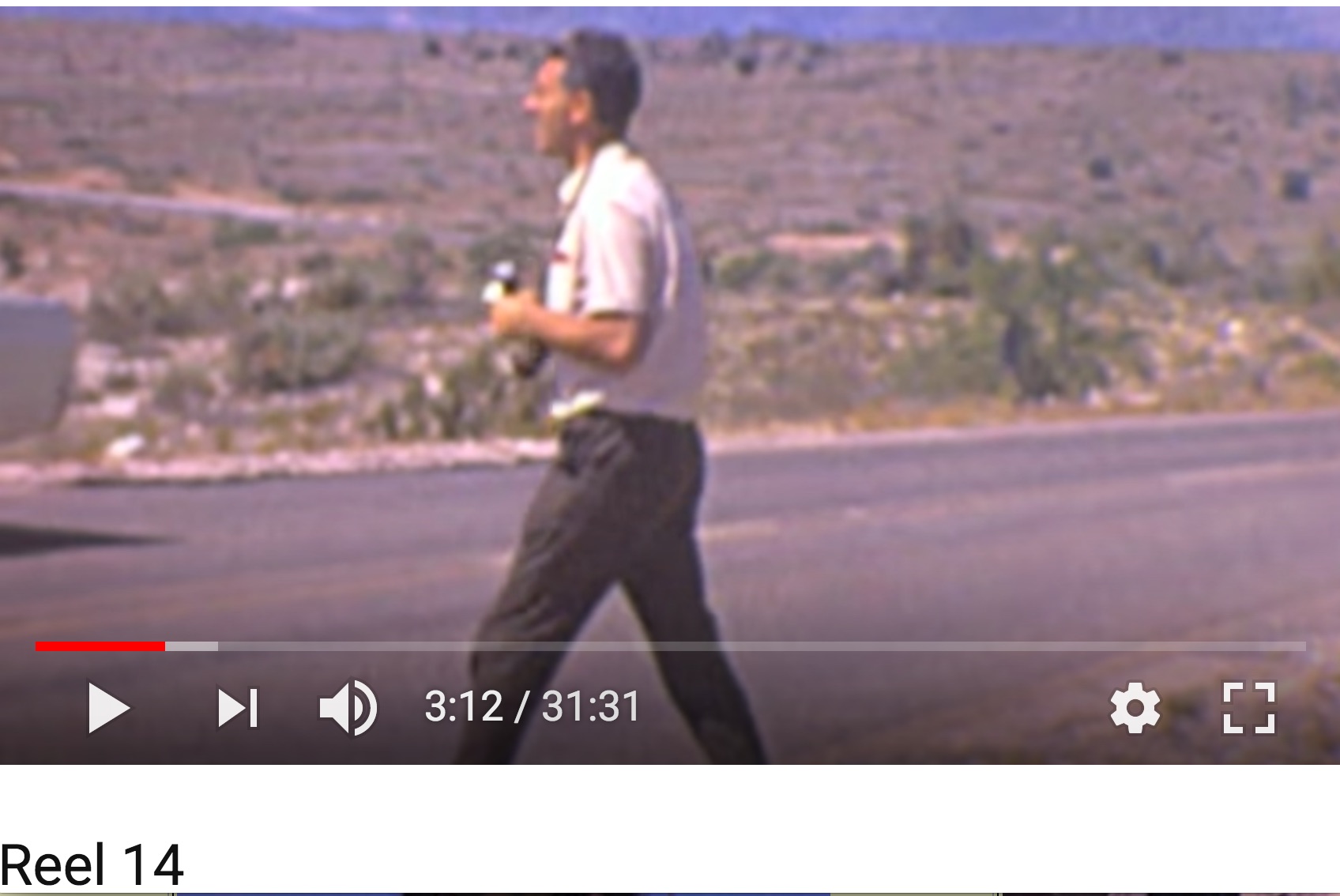
Bill Williams June 1970 Arizona Desert
But we met him in around 1964 and saw him again in the 80s.
HOME
PEOPLE AND PETS PAGE
Correspondence
http://limnology.org/notable-limnologists/vale-william-bill-williams/
Pdf about Bill Williams
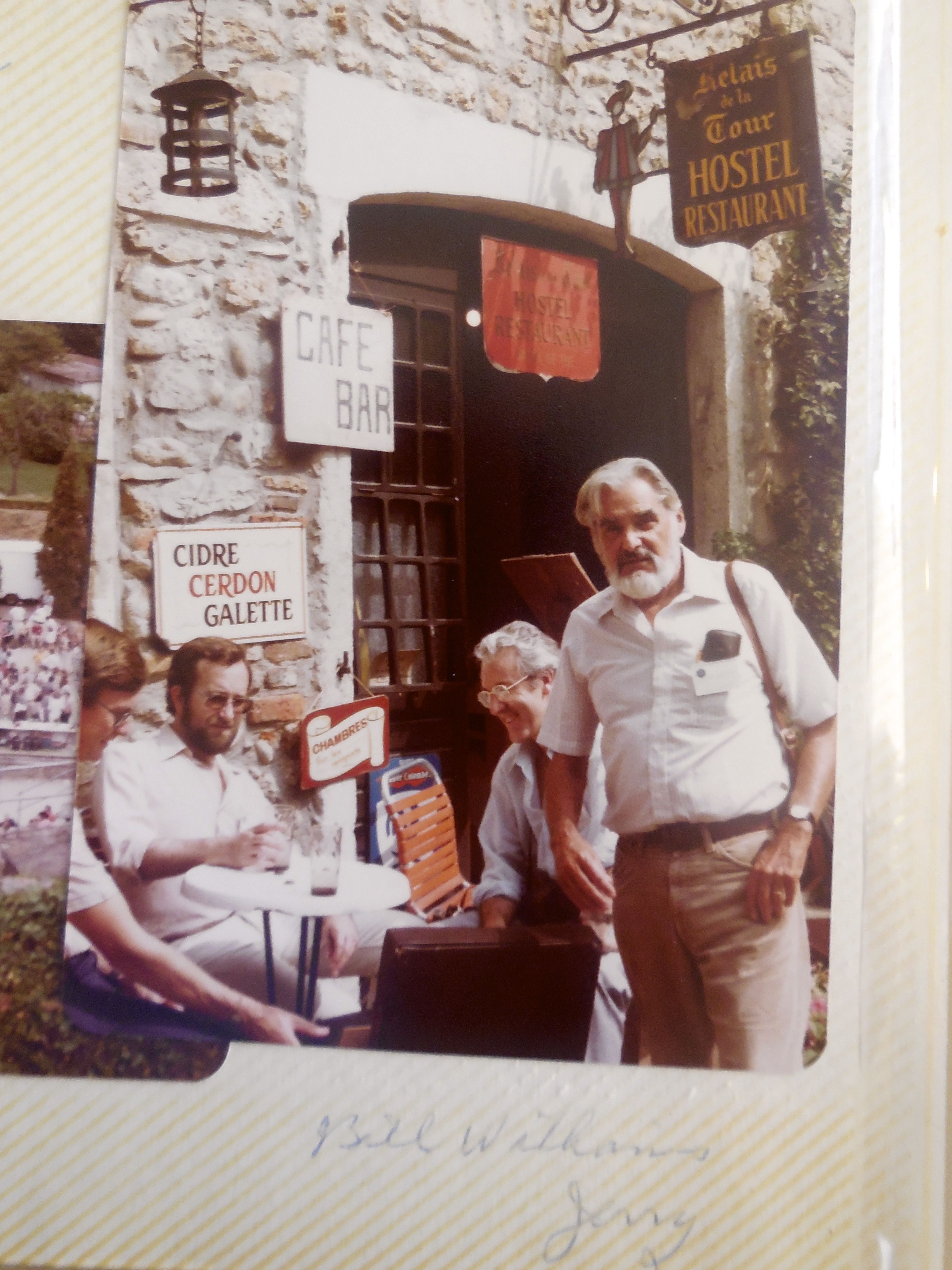 Bill Williams and Dad in Europe.jpg COLLAGE: 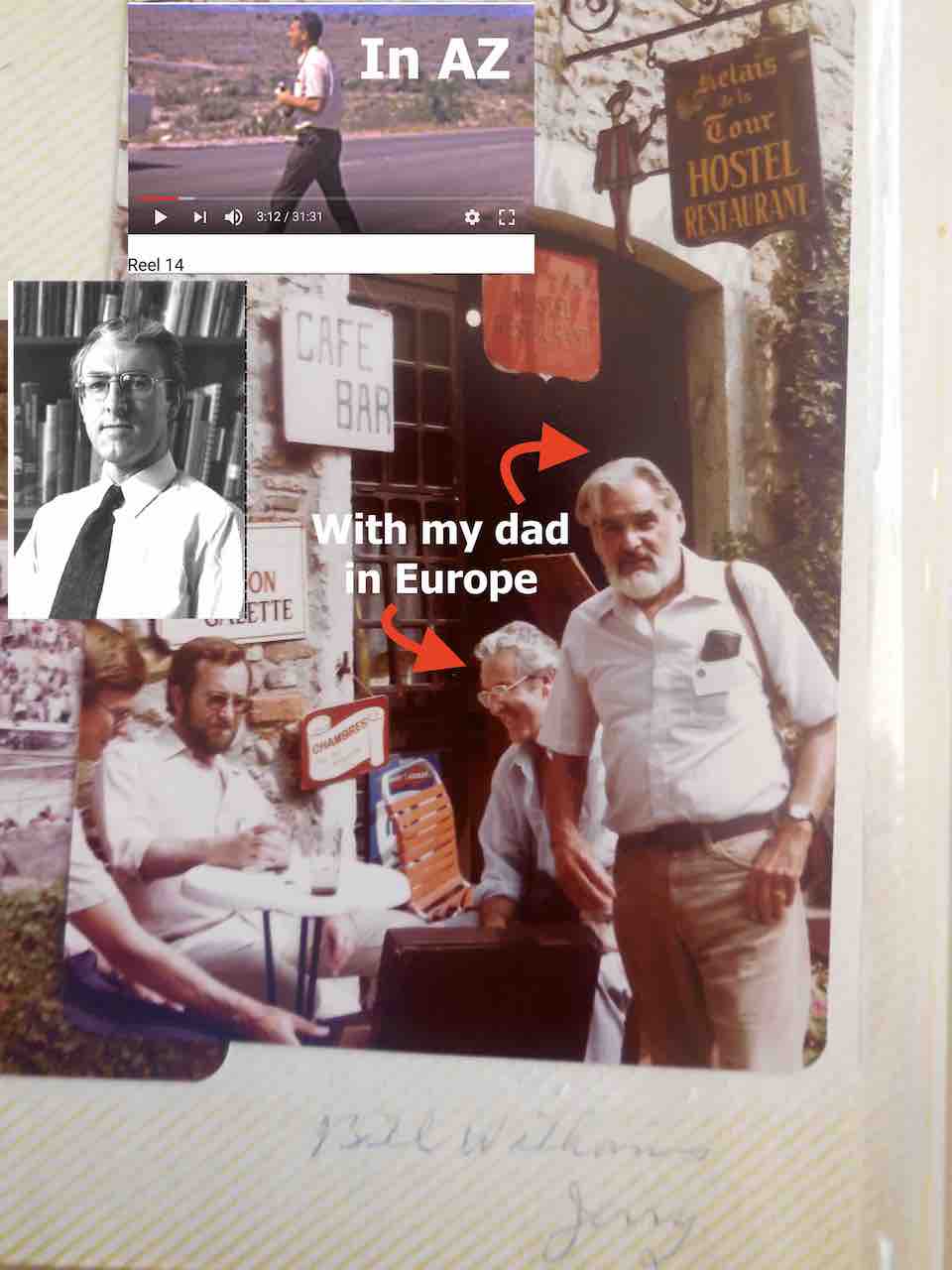 Bill Williams yy.jpg Bill Williams Adelaide Letter 1983.jpeg 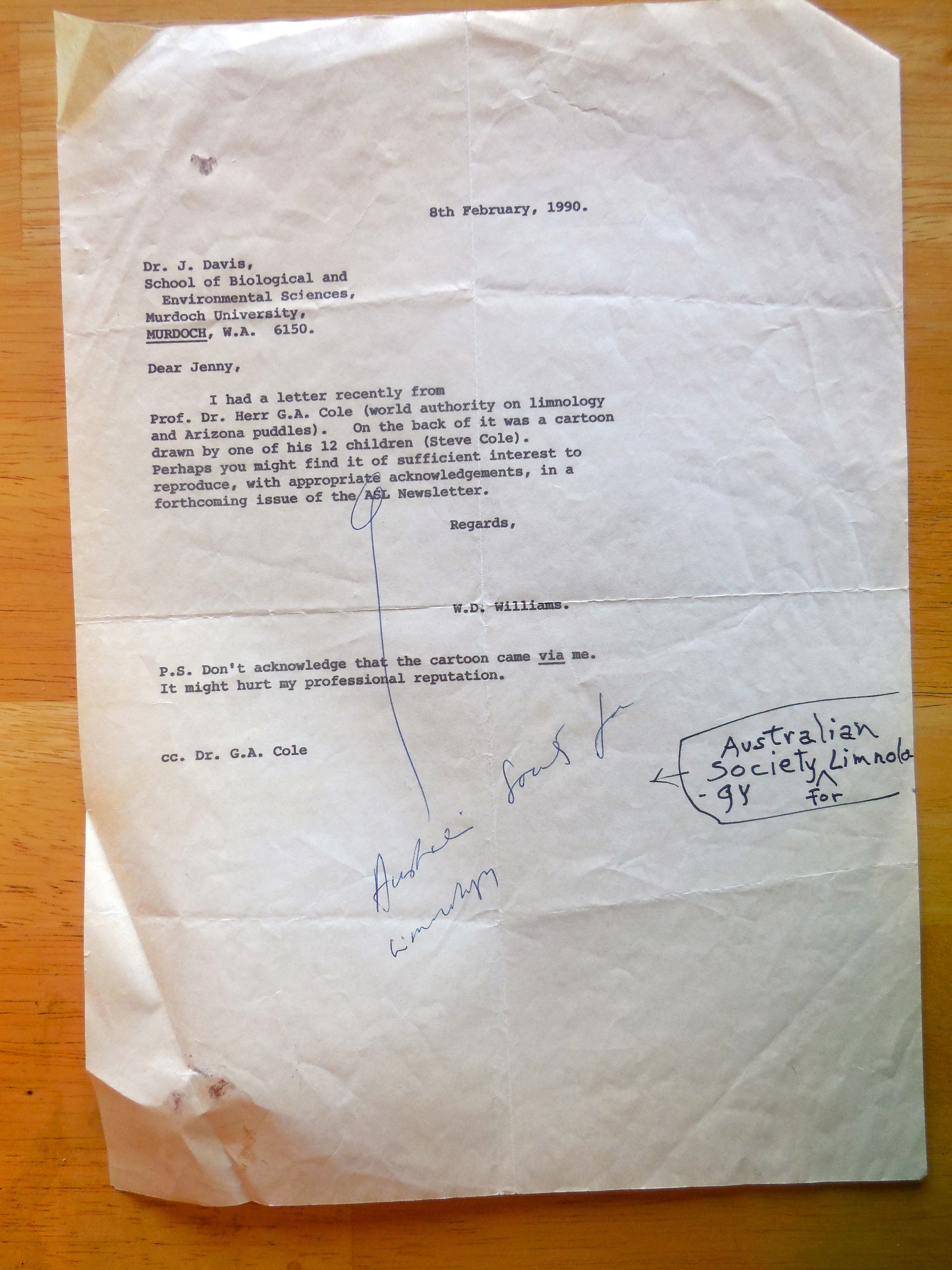 Bill Williams Letter another.jpg 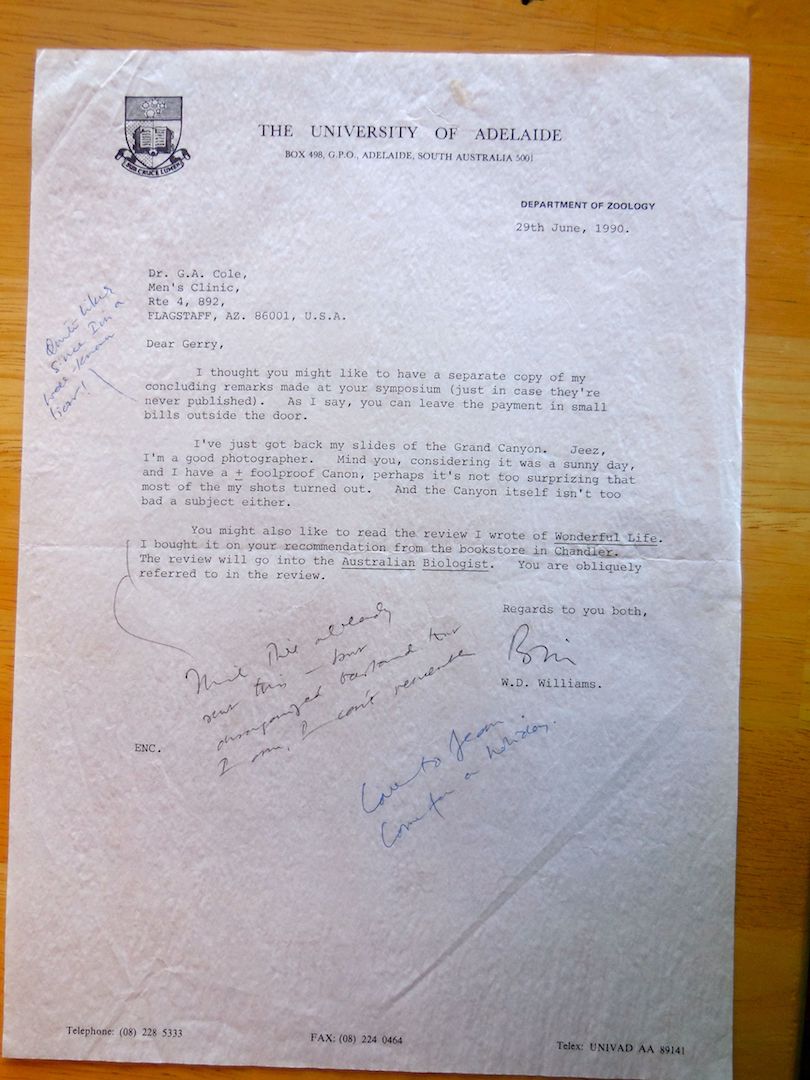 Bill Williams Letter-2.jpg 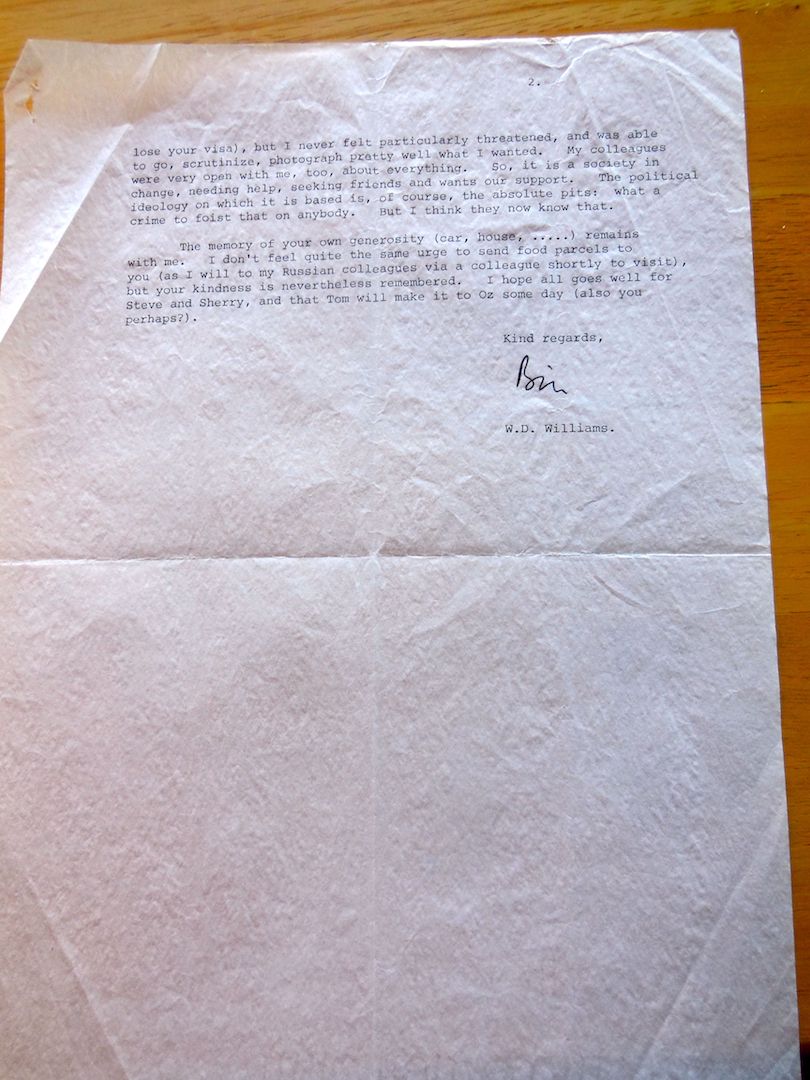 bill williams letter.jpg 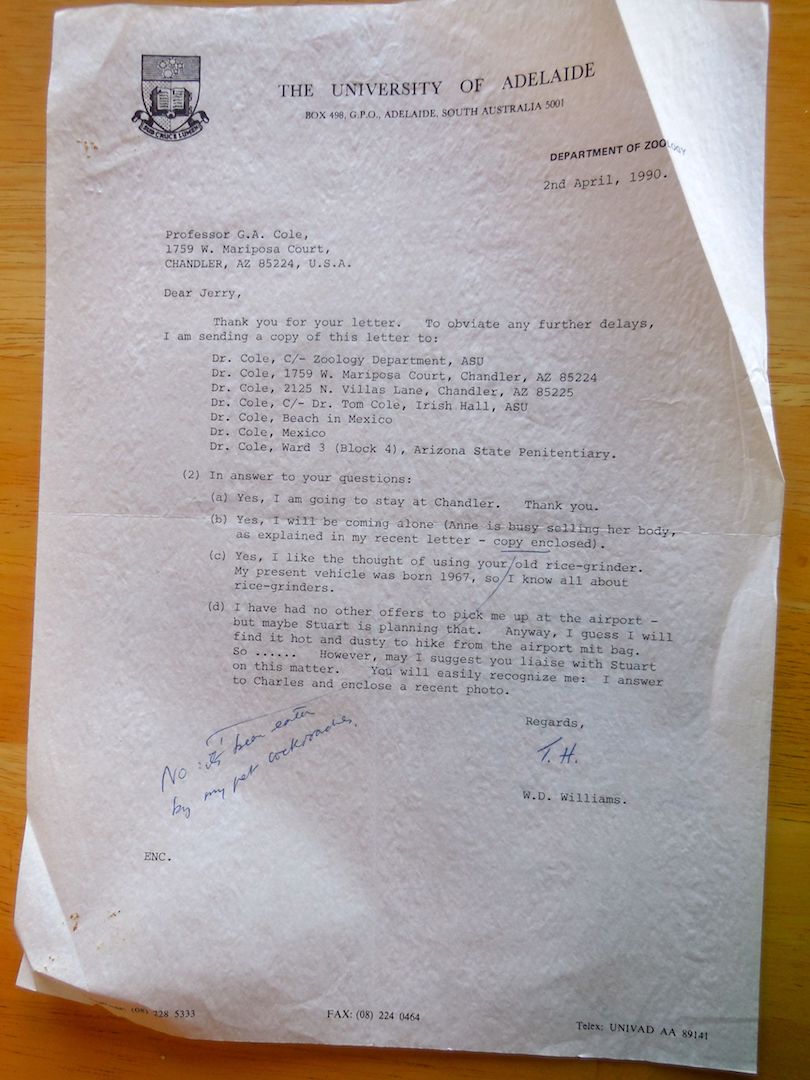 Bill Williams Letter2a.jpg 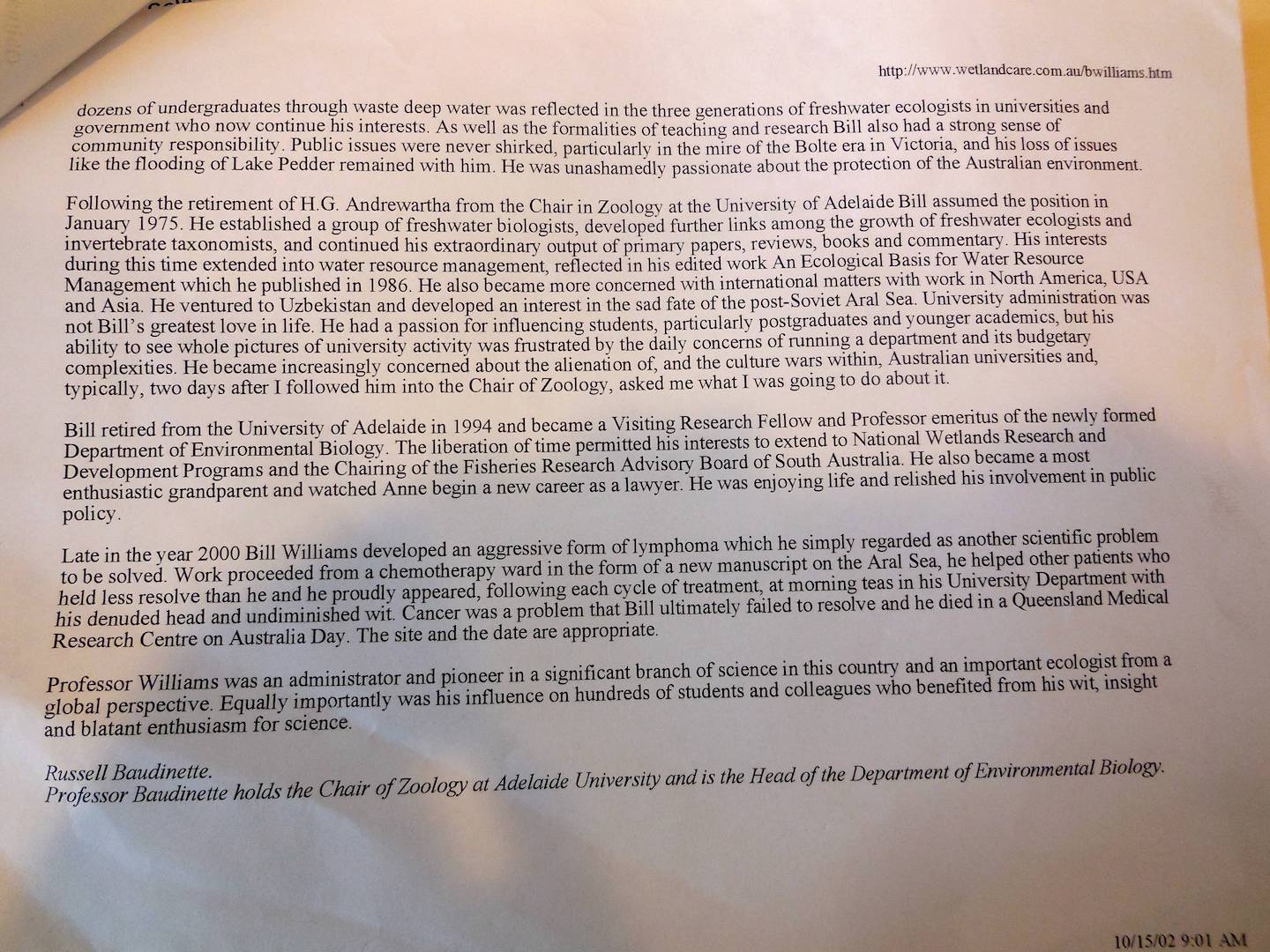 Bill Williams obit-2.jpg 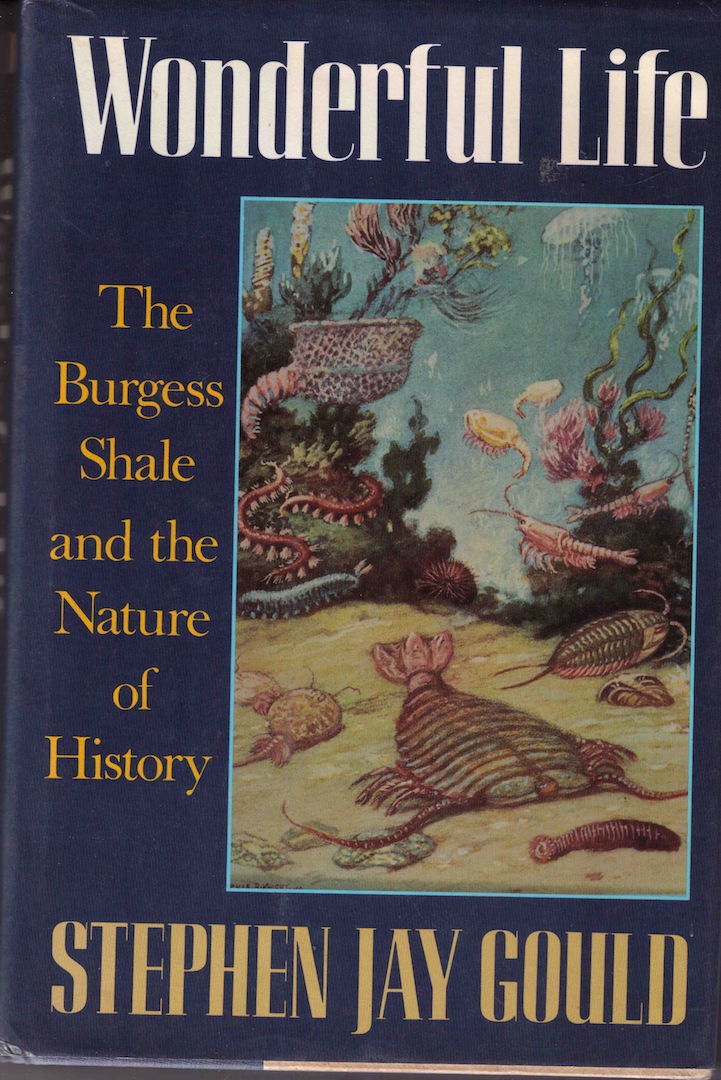 Wonderful Life Gould.jpg 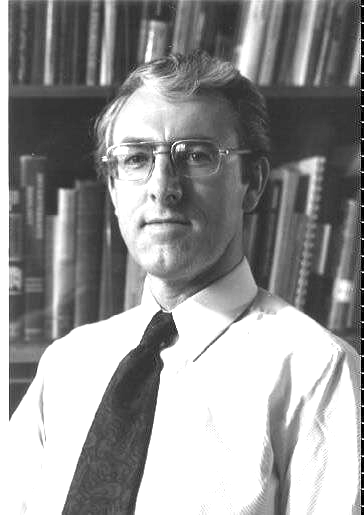 Bill Williams Photo.png HERE AGAIN IS THE NOTABLE LIMNOLOGISTS PAGE IN TEXT FORM Emeritus Professor W.D. (Bill) Williams died on Australia Day 2002, after a long battle with acute myeloid leukaemia. Bill was a long time member of SIL, and began partial editorial duties for the Verhandlungen in 1995 (congress in Brazil) and continued through 2000 (end of Proceedings from the Congress in Dublin). He also presented the Kilham Memorial Lecture at the Congress in Brazil in 1995. Although he influenced many facets of limnological science, his passion was the saline lakes that dominate the Australian landscape. “Salt lakes”, he would say, “are a marvellous resource for scientists, but very few of us recognise their intrinsic values”. Bill grew up in Liverpool, during the harsh years of the Second World War and its aftermath. With a deep affection for the English Lakes District, encouraged by Macan and Worthington’s Life in Lakes and Rivers (Collins, 1951), and driven by a fierce inner determination, Bill graduated as a limnologist from the University of Liverpool in 1961. There he was a protégé of Professor H.B.N. (Noel) Hynes, a pioneer in river ecology who later went to Canada. Bill’s Ph.D. was devoted to the ecology, taxonomy and biogeography of an aquatic isopod, Asellus. He completed his thesis in record time, by sleeping during the day and working at night. In 1961, with his bride Anne, and still with a very English demeanour, Bill arrived in Australia to join the new Department of Zoology & Comparative Physiology at Monash University, chaired by Professor A.J. (Jock) Marshall. Encouraged by the good-natured chivvying of colleagues at Monash, Bill soon adapted to his new environment and was evermore an Australian. He remained at Monash for 14 years. From the outset he developed a close working relationship with Ian Bayly, a recent arrival from New Zealand, and together they became pioneers in Australian limnology. The pair explored the farthest corners of the continent and forged links with other pioneers like Peter Tyler in Hobart, Hilary Jolly in Sydney, John Lake in Narrandera and Alan Weatherley in Canberra. One of their initiatives, in 1961, was to help found the Australian Society for Limnology. Today, the ASL has a membership of more than 600. The many saline lakes of western Victoria held a particular fascination for Bill and Ian, and their beloved lakes soon became a magnet for students. Part of the reason was that, in a time when ecology had an ‘ecosystem’ focus, saline lakes were attractive because they contained relatively few species, notwithstanding their high productivity, and so appeared to be less complex and more easily investigated than other ecosystems. Sadly, many of those lakes eventually fell to unsympathetic development, particularly irrigated agriculture, and they are now a shadow of what they were. During his years at Monash, Bill and his colleagues all exercised a strong sense of social responsibility, seen in their contributions to public debates. For Bill especially, the flooding of Lake Pedder in Tasmania was a grievous loss that he strongly contested and never forgot. At the time he left Monash in 1974, Bill had been promoted to Reader. With an already prodigious record of publications, including the seminal first edition of Australian Freshwater Life (1968) and Inland Waters and their Ecology (with I.A.E. Bayly, 1973), and as a father-figure to a generation of new limnologists, Bill left Monash to join the University of Adelaide, where the Chair in Zoology lay vacant following the retirement of Professor H.G. Andrewartha. He took up that post in January 1975. At the helm of the new department, Bill’s good humoured, avuncular nature extended well-beyond colleagues in limnology. Students in all areas of zoology will remember his encouragement, perhaps as kindly words over a sherry in the Chairman’s office, a letter of support or names dropped at those critical times when people’s career paths are set. Within the limnological realm, Bill’s prowess as an editor assumed legendary status. We may never know how many of today’s present generation of water resource professionals have benefited from his reworking of a once-shabby manuscript! And many more received the same benefit through papers submitted to journals, conference proceedings and books that issued from his influence. Throughout his tenure at Adelaide, Bill continued his extraordinary output of literature, eventually accruing more than 250 articles, book chapters and books. Amidst the pressures of chairmanship, he could always find time to write, as he loved to do, but it usually was after dinner at home, when he could retreat to his den and work on into the early morning. At Adelaide, Bill became more involved in matters related to the management of water resources, seen in edited books like An Ecological Basis for Water Resource Management (1980) and Limnology in Australia (with P. De Deckker, 1986), and his contributions to government committees. He was proud to receive a Doctor of Science degree from his alma mater. At that time too, he extended his global influence, spending time in the UK, USA, Canada, Germany, South Africa, Japan, Indonesia, India and Hong Kong. In journeys to Kazahkstan and Uzbekistan, discussions over the fate of the Aral Sea left no less an impression on him than did the saga of Lake Pedder. Bill’s global outreach was such that, if limnologists in other countries were asked to name a colleague in Australia, he surely would be the popular choice. As an advocate for the Australian environment, he insisted that we should look at our lakes and rivers afresh, and not through the eyes of scientists from the Northern Hemisphere, as some textbooks encourage us to do (Williams, 1988). Bill never much enjoyed university administration because it diverted him from science. He did appreciate the value of his role as Chairman, however, as a means to expedite action and overcome inertia. Eventually, the increasing demands of administration and the changing nature of universities, under external political pressures, were among reasons that led him to retire in 1994. The change was a release for pent-up energy that led him into important new roles with the South Australian Fisheries Research Advisory Board and the National Wetlands R&D Program. He donated his priceless library of reprints, spanning many shelves, to the South Australian R&D Institute (SARDI). He retained an academic role as Emeritus Professor, but preferred to keep a low profile in a department that had new paths to explore. Fourteen months ago, Bill learned that he had leukaemia. In the months that followed he continued to read and write, and many associates received from him drafts, manuscripts or proofs needing their attention. “I’ve had a good life”, he said in November 2001, “and if I have one professional regret it is that I did not speak out more strongly about the destruction of “Spaceship Earth”. Although Bill enjoyed a brief period in apparent remission, it was not to last. He died in Brisbane on 26 January 2002. Bill Williams made a major contribution to science, and no less a contribution to the welfare of other scientists. Academics sometimes represent the lifetime achievements of a colleague as a tree, and in that regard Bill’s lineage is well-grown. The spreading branches and branchlets represent connections to many hundreds of water resource professionals in Australia and around the world. With roots in the past, branches in the present and seeds for the future, long may that tree flourish. Bill is survived by a brother and sister, wife Anne, sons Simon and Richard and two grandchildren. In the Queen’s Birthday Honours List for June 2002, Bill was made a Member of the Order of Australia. Anne was able to tell him of his nomination before he died. References:Bayly, I.A.E. and Williams, W.D. 1973. Inland Waters and their Ecology. Longman. Australia. De Deckker, P.D. and Williams, W.D. (eds.) 1986. Limnology in Australia. CSIRO, Melbourne and Dr. W. Junk, Dordrecht. Macan, T.T. and Worthington, E.B. 1951. Life in Lakes and Rivers. The New Naturalist Series, Collins:London. Williams, W.D. 1968. Australian Freshwater Life. Sun Books, Melbourne (2nd ed. 1980: Macmillan, Melbourne). Williams, W.D. (ed.) 1980. An Ecological Basis for Water Resource Management. Australian National University Press, Canberra. Williams, W.D. 1988. Limnological imbalances: an antipodean perspective. Freshwater Biology 20:407-420.
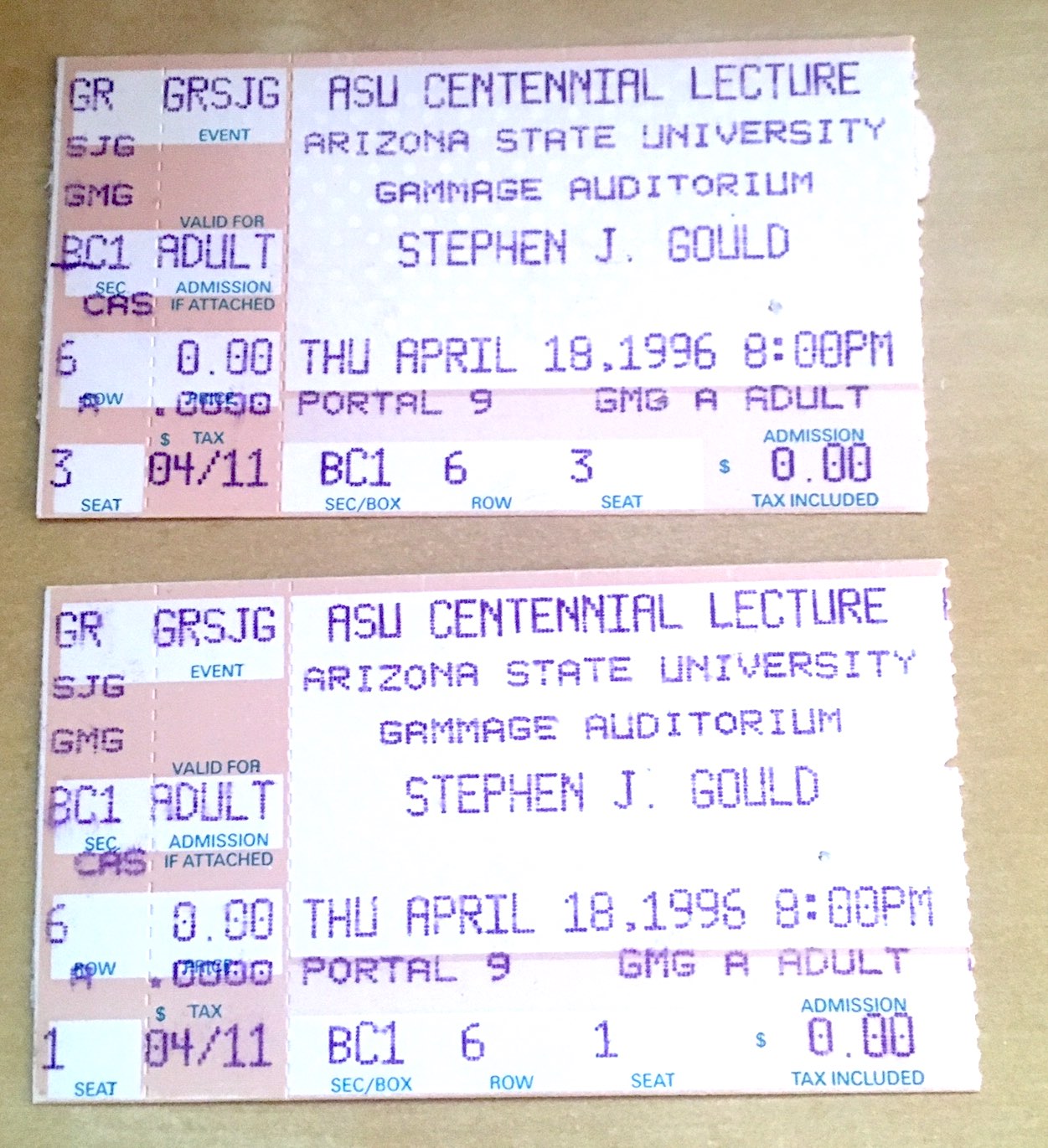
Stephen J. Gould Tickets for Talk Dad and I
Attended.jpg
2125 North Villas Lane 09/12/1989 Here is a letter I sent to mom and dad: September 12, 1989 Dear Mom and Dad: Here's that letter from Bill Williams. I have been learning about desert rats and other things lately. The blackbirds have begun their little westward flights at 6:30 PM. The puppy still wakes me up at sunrise every morning and is not housebroken yet. I just went shopping and got forty bucks worth of stuff. Light bulbs and stamps were included in my purchase. I have been reading my fossil book. I have been working on the computer. I have been watching the Caine Mutiny on channel 15. I plan to watch the Odd Couple this evening as well. As you can clearly see, I have little to write. Superstitions 04/25/1990 Just a quick update. Last week, Bill Williams came to Tempe from Australia. I lost my keys but had already planned to meet Dad and Bill Williams, so I got a ride with them from Bill William’s talk. I went to the Superstition Mountains on Saturday to play guitar at Larry’s wedding. They videotaped me. Steve didn’t play. It was a very short little ceremony with some Baptist minister near the parking lot and after I played there was no move for new music. Larry invited us to have breakfast at Village Inn and Steve and I overshot the place and turned around. Larry tried to get us, but we had already turned back. He was back in a few minutes. Then, I left early taking the van and went to ASU to see the presentations in honor of Dad. Kubly, Minckley, and several others gave presentations on limnology. They had IBM screen dump-type slides. Minck showed pictures of Cuatrocienegas twenty years ago and today. Bill Williams gave the final comments, saying “I’ve known this bastar... I mean this gentleman for ....” He confessed that in his own country and for his own classes Dad’s texbook had replaced his. It was a funny talk. They all gave Dad a standing ovation. It was something else.
|
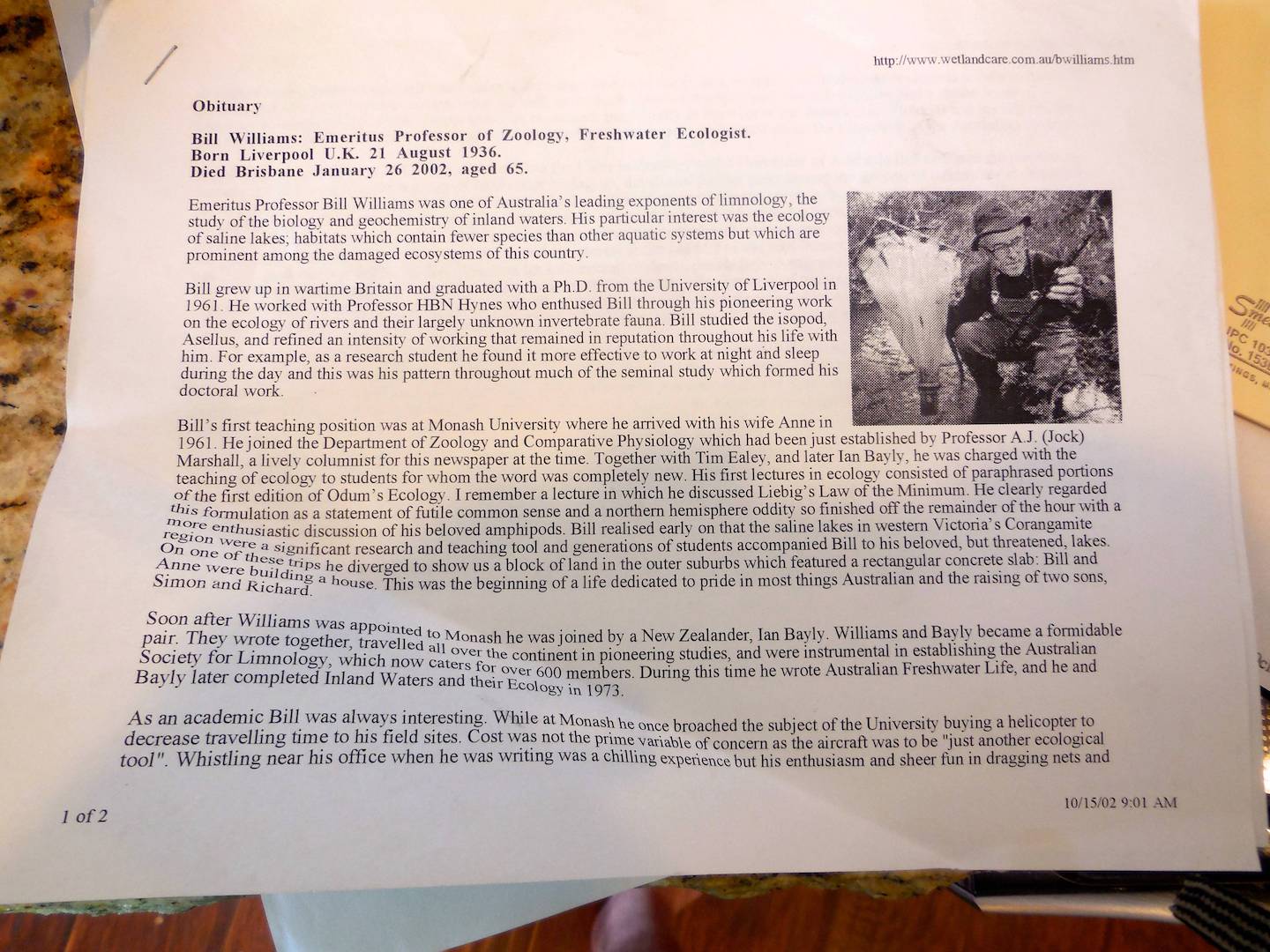 Bill Williams obit.jpg 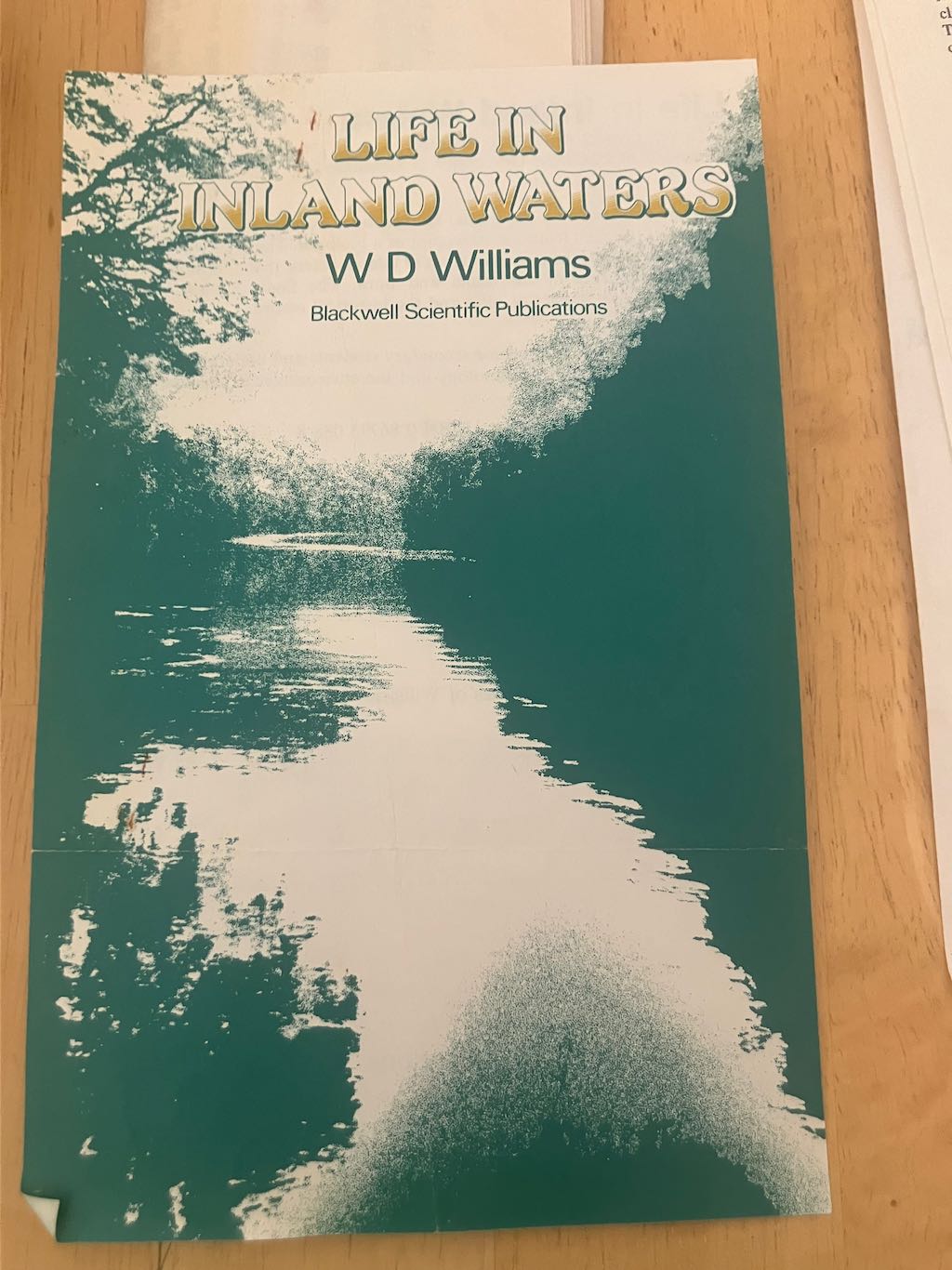 Bill Wiliams Life in Inland Waters 1.jpeg 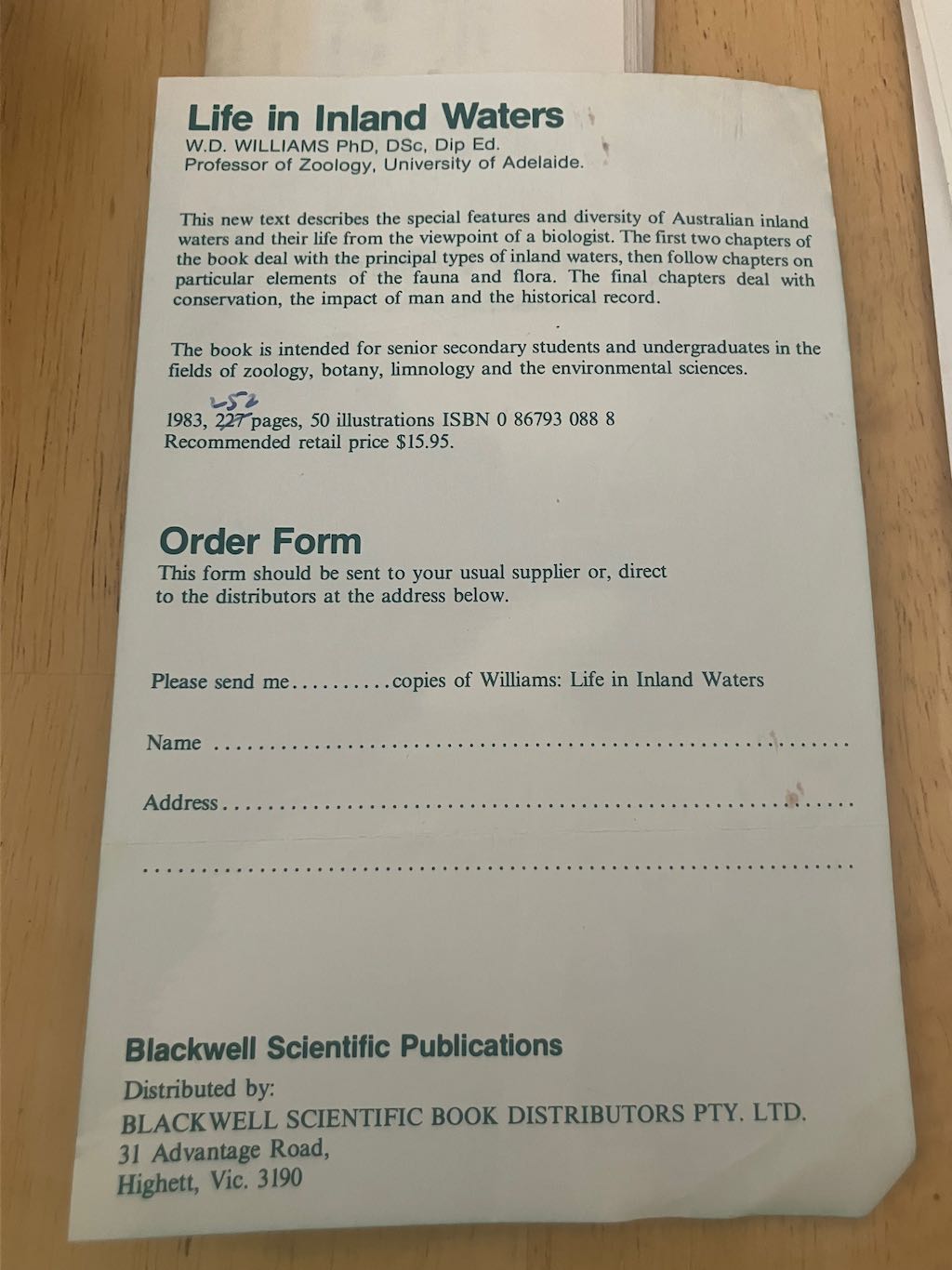 Bill Wiliams Life in Inland Waters 2.jpeg 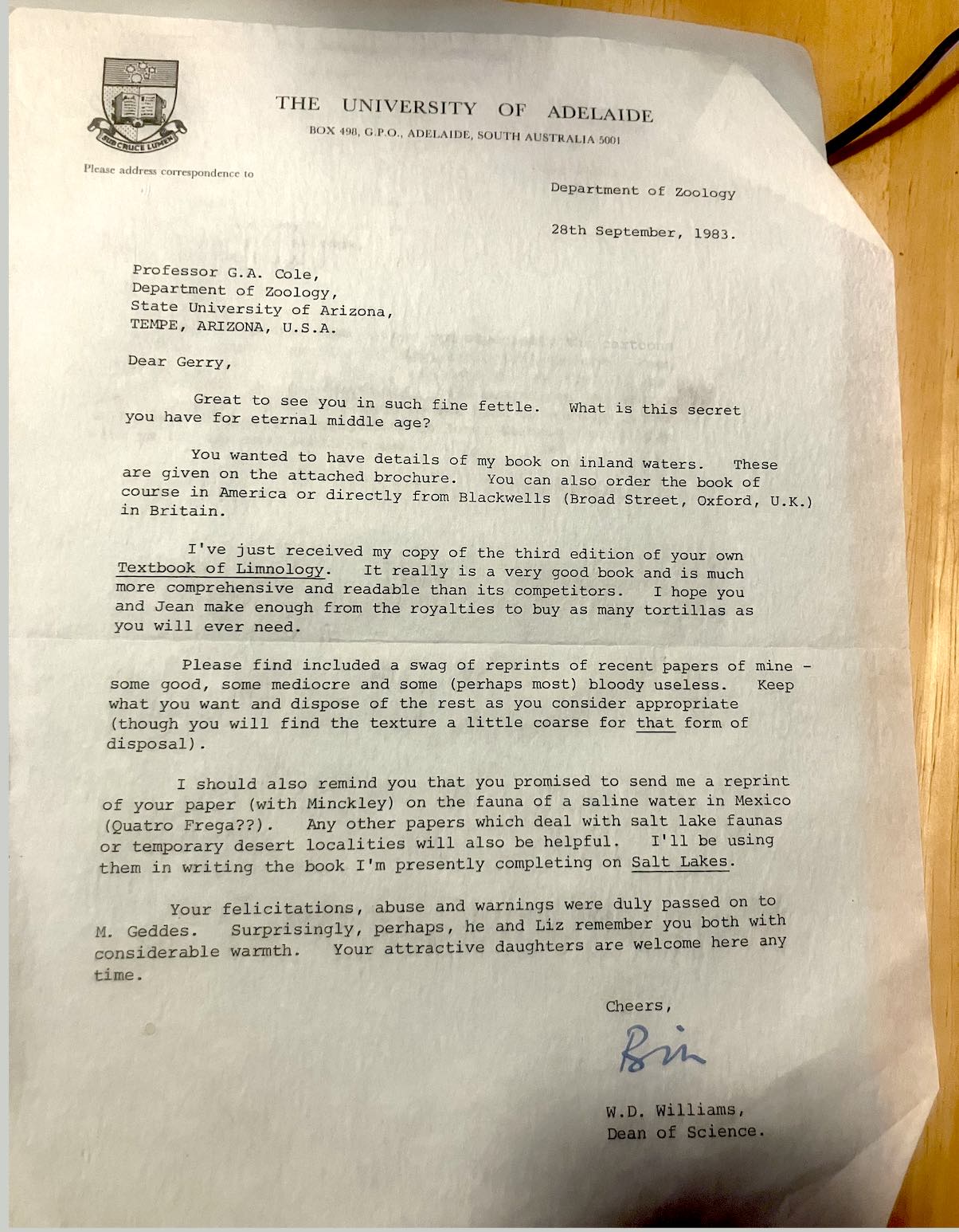 Bill Williams Letter 1983.jpg 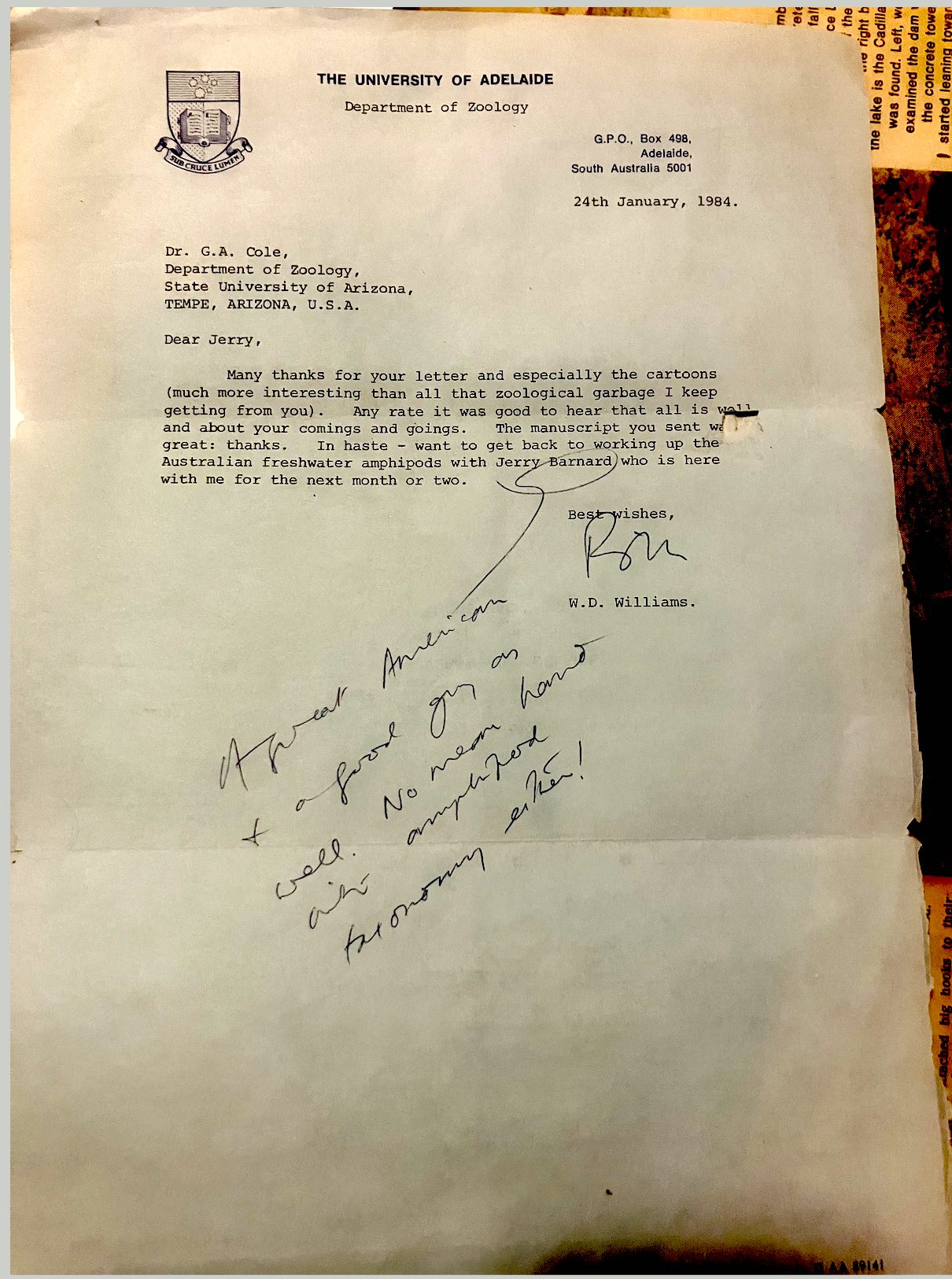 Bill Williams Letter 1983 another.jpg Wendy's Birthday Card Dad's 72nd.jpg Wendy's Birthday Card Text Dad's 72nd.jpg Letter to Dad From India AK Sharma.jpg 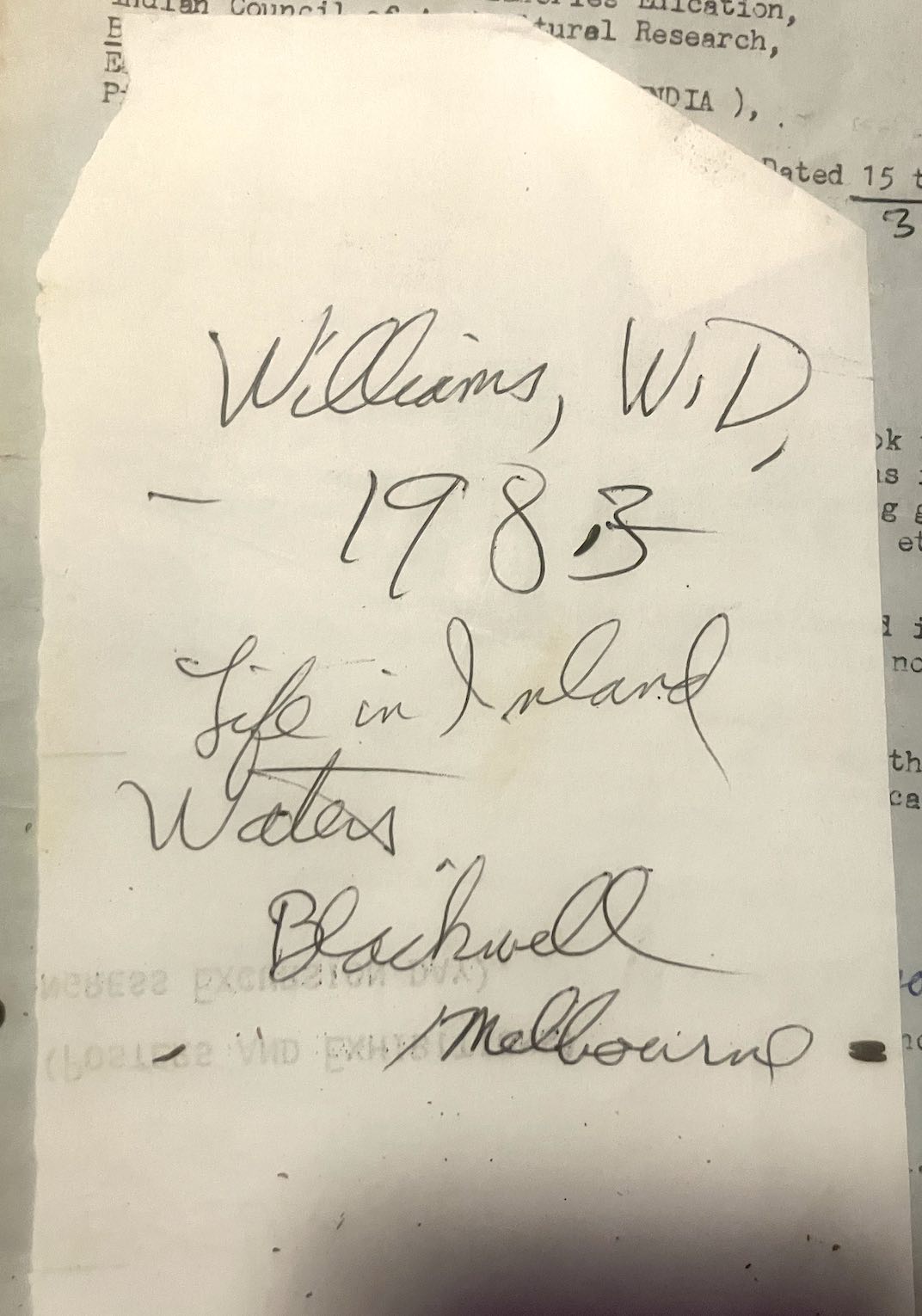 Bill Williams Note 1983.jpg 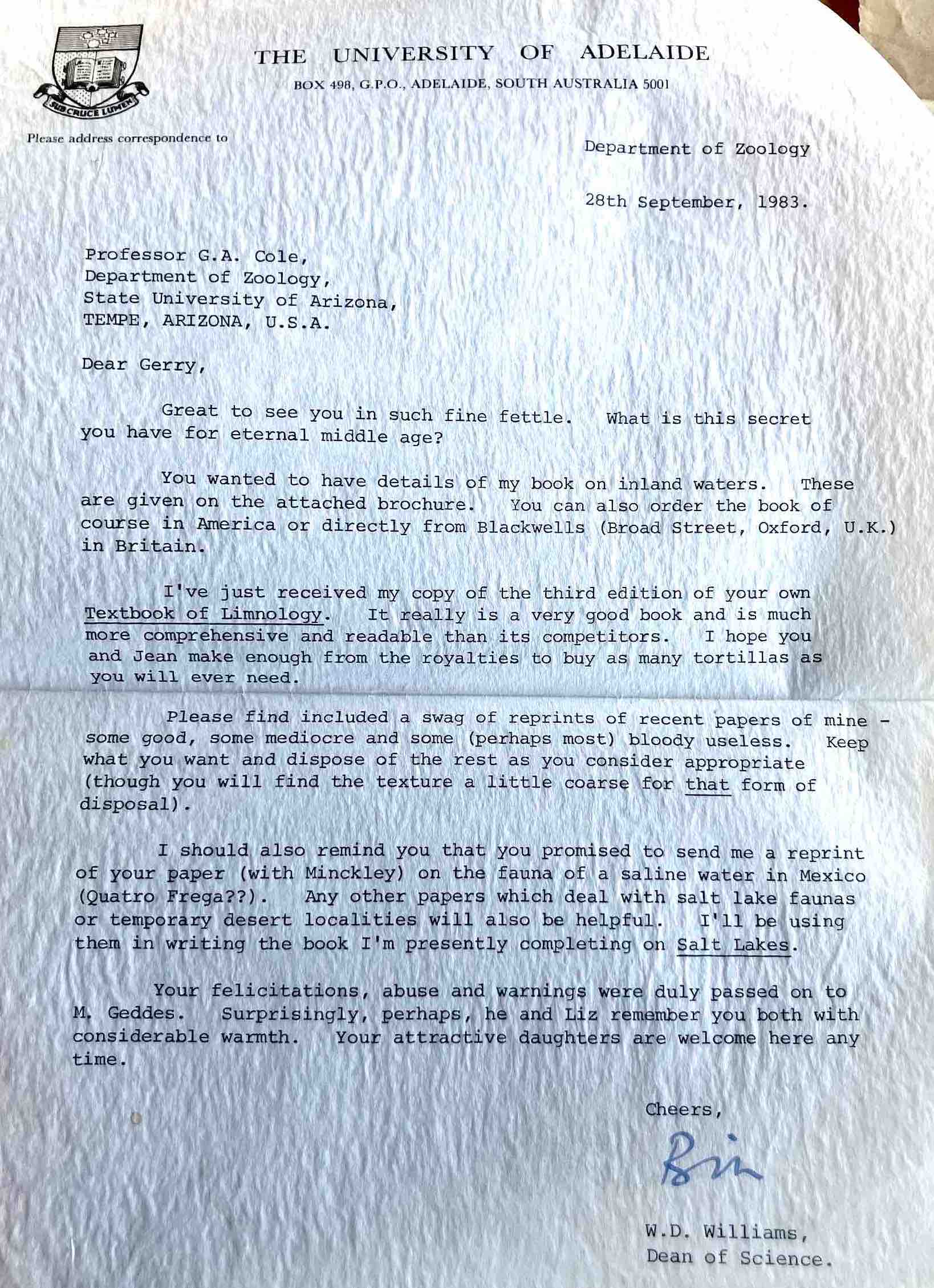 Bill Williams Adelaide Letter 1983.jpeg 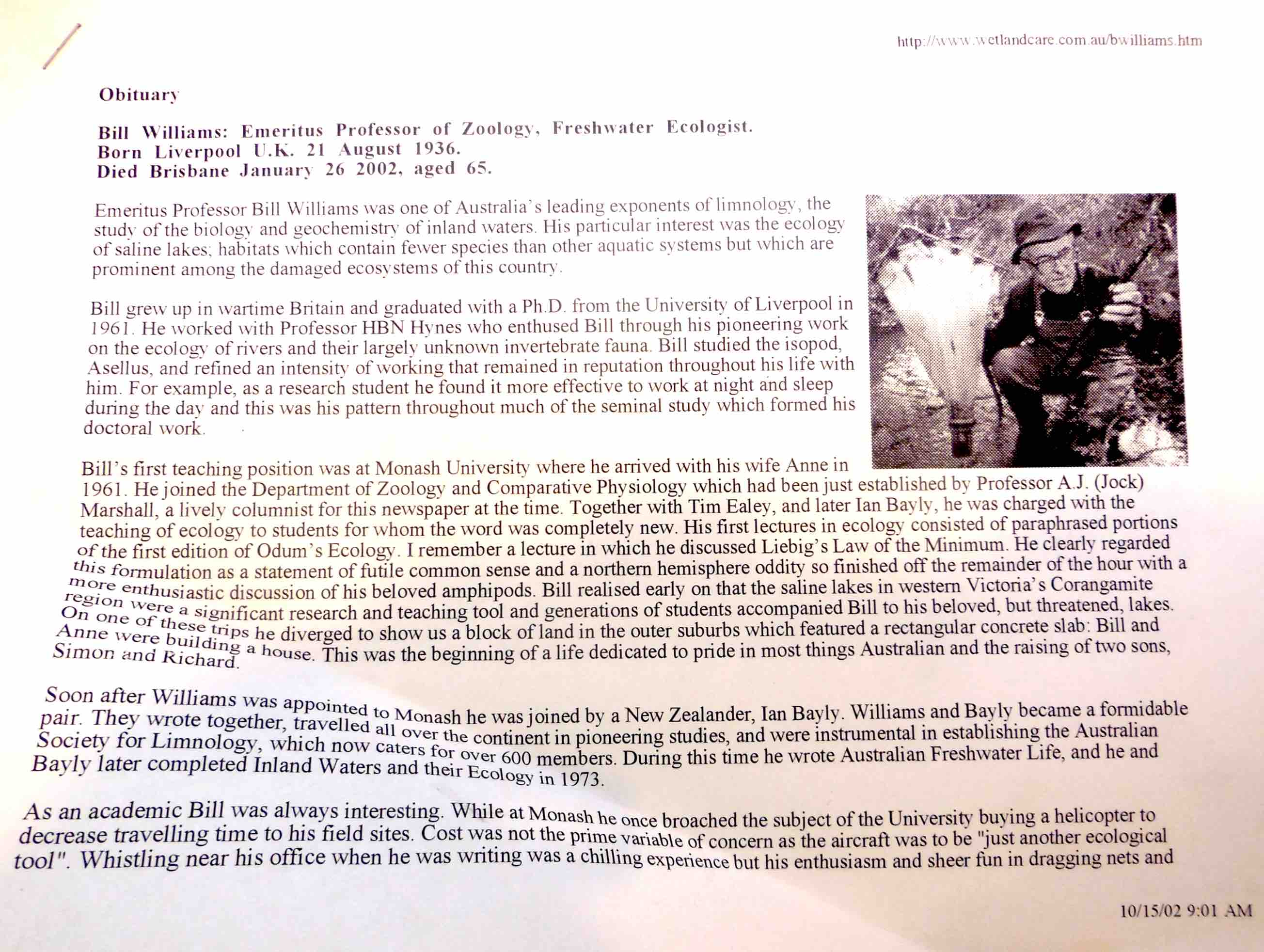 Bill Williams Obit 1.jpg 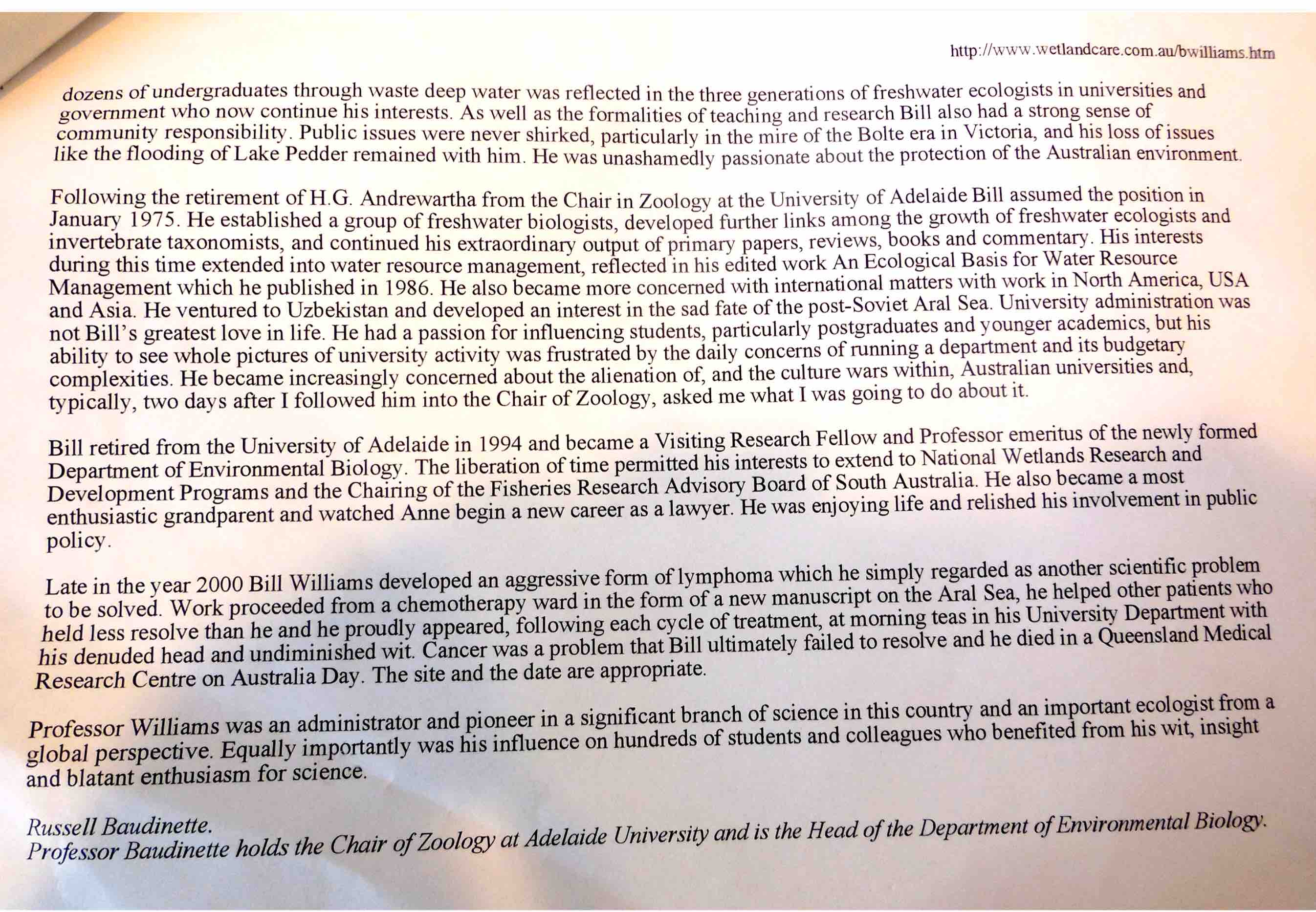 Bill Williams Obit 2.jpg 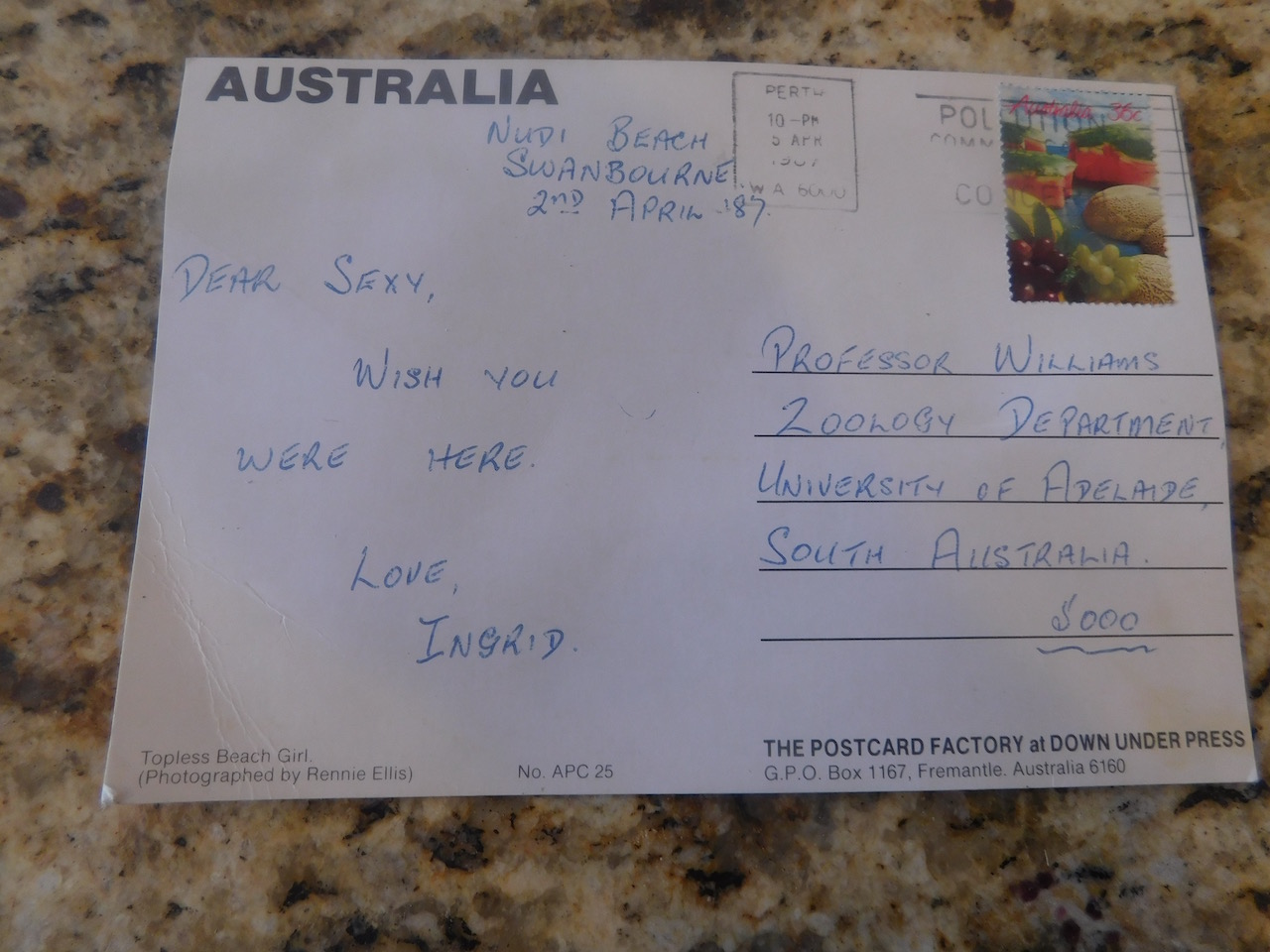 Bill Williams' post card B.jpg (El destinatario es Bill.) 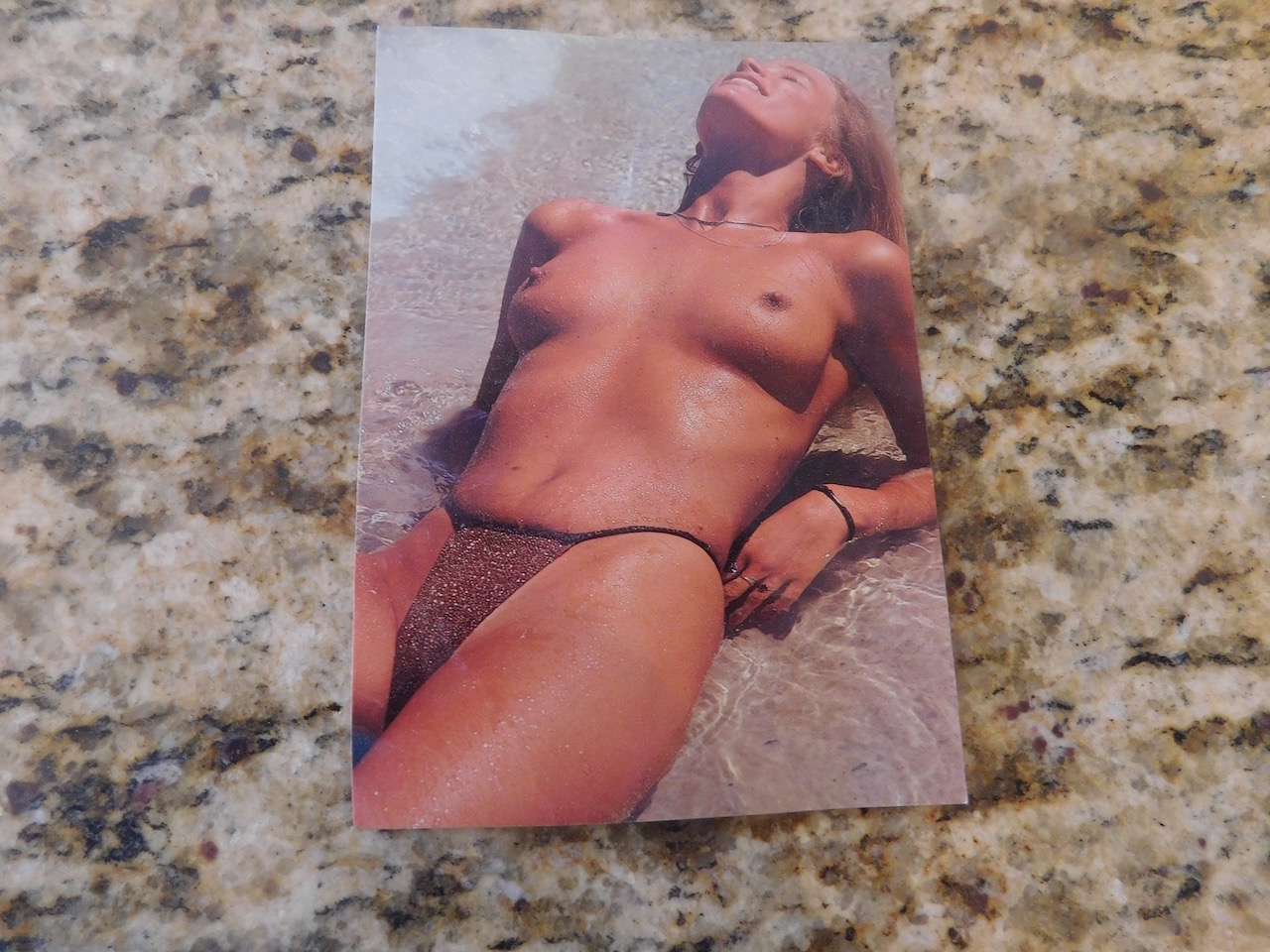 Bill Williams' post card.jpg 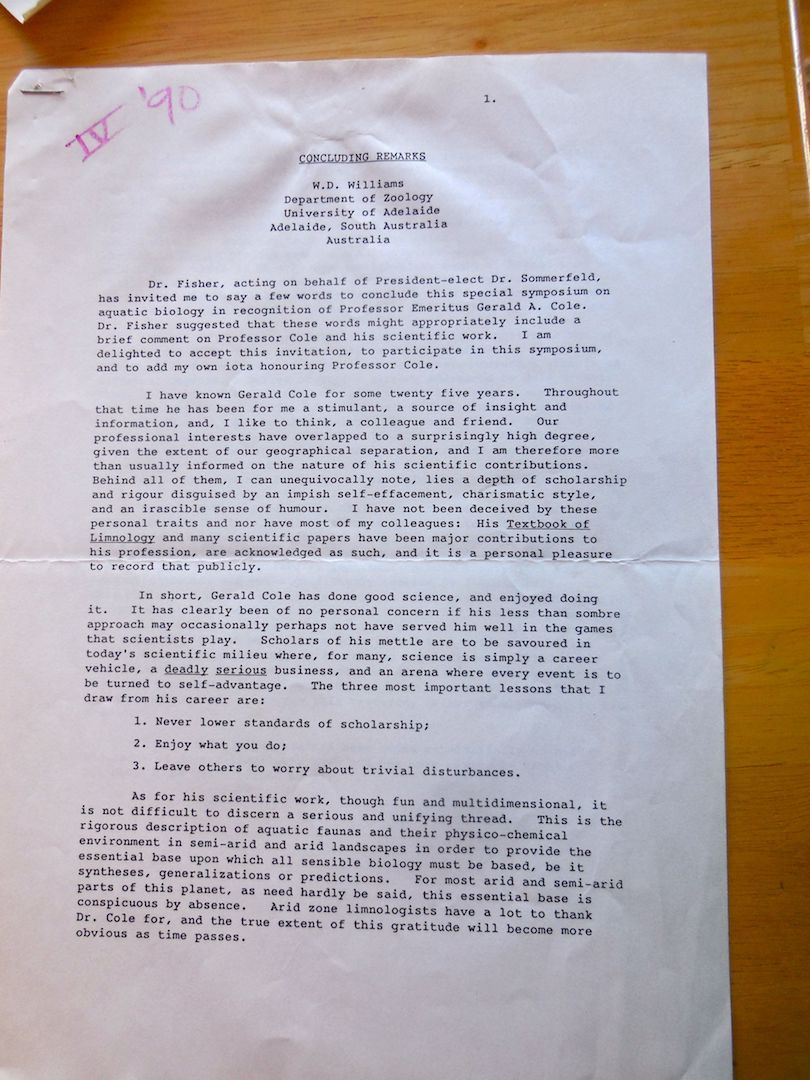 Bill Williams' remarks about Dad.jpg 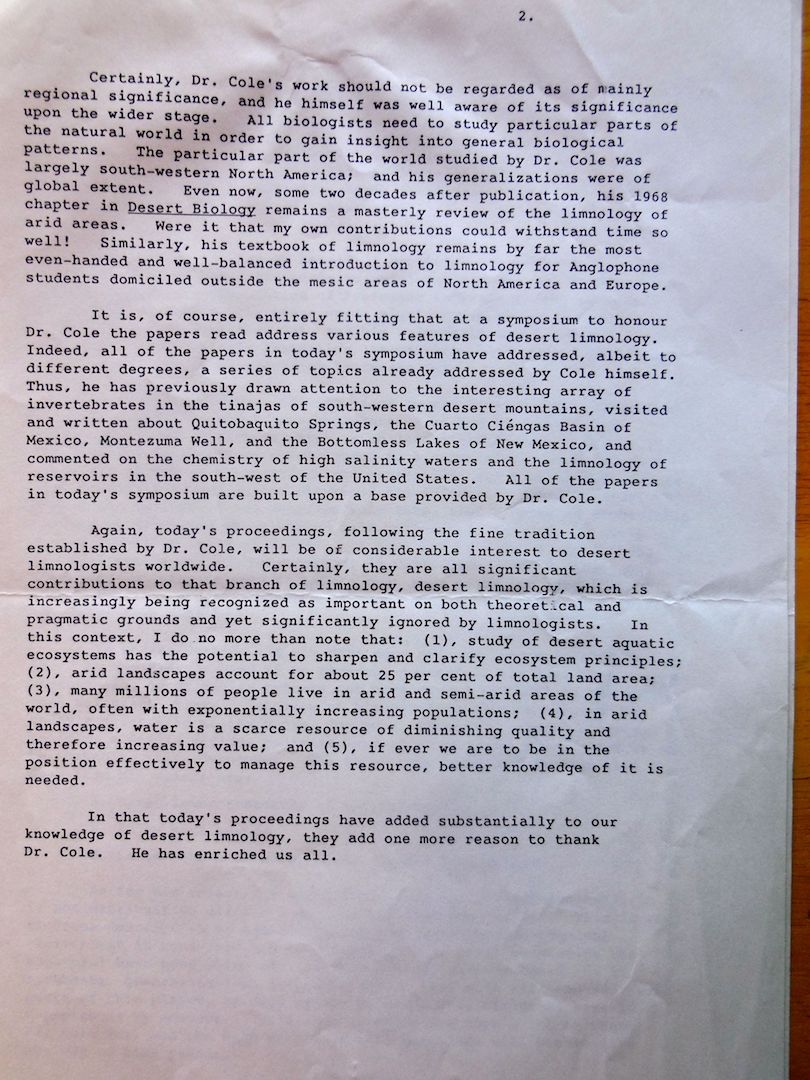 Bill Williams' remarks about Dad2.jpg 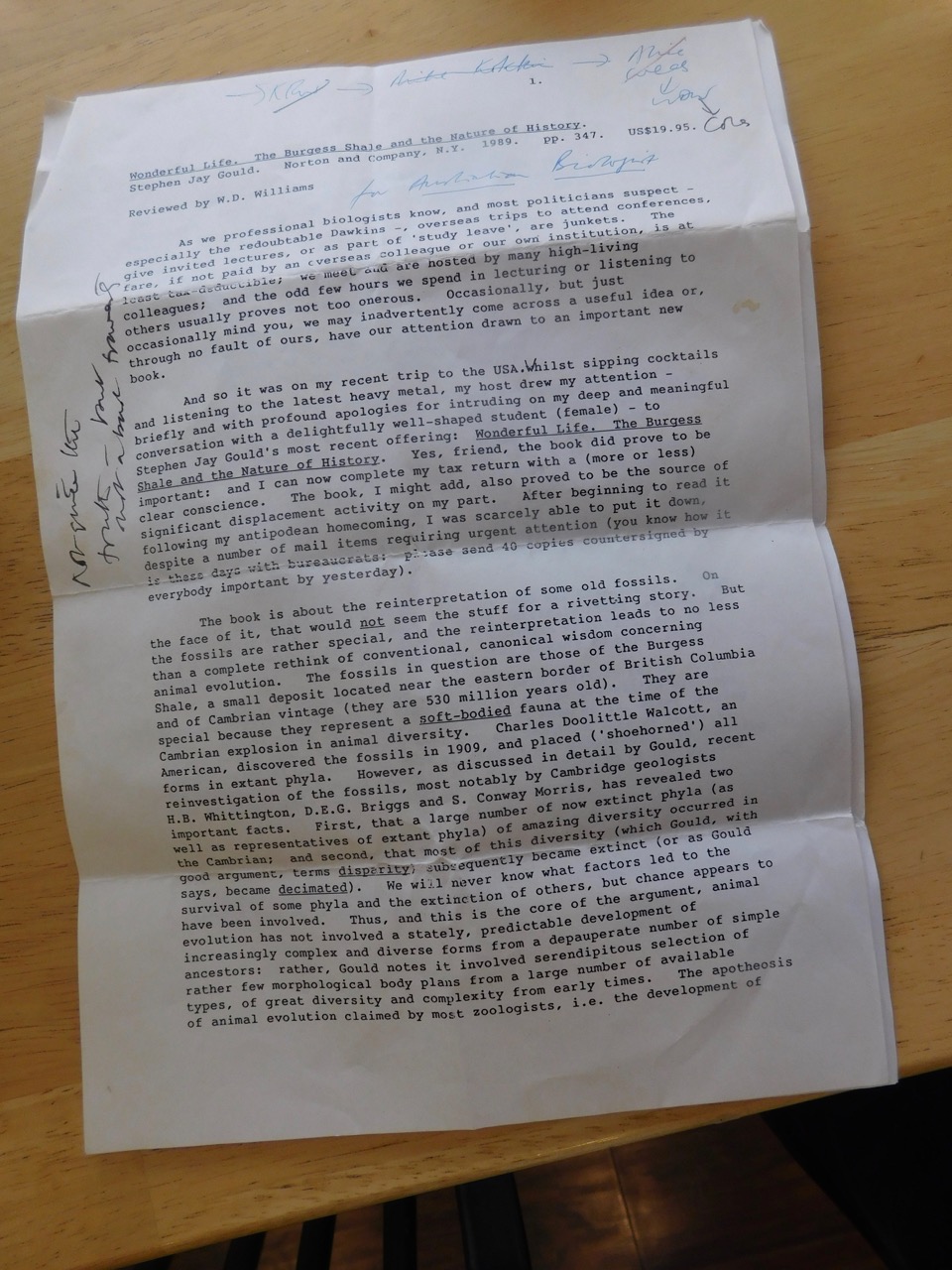 Bill Williams Wonderful Life Review a.jpg 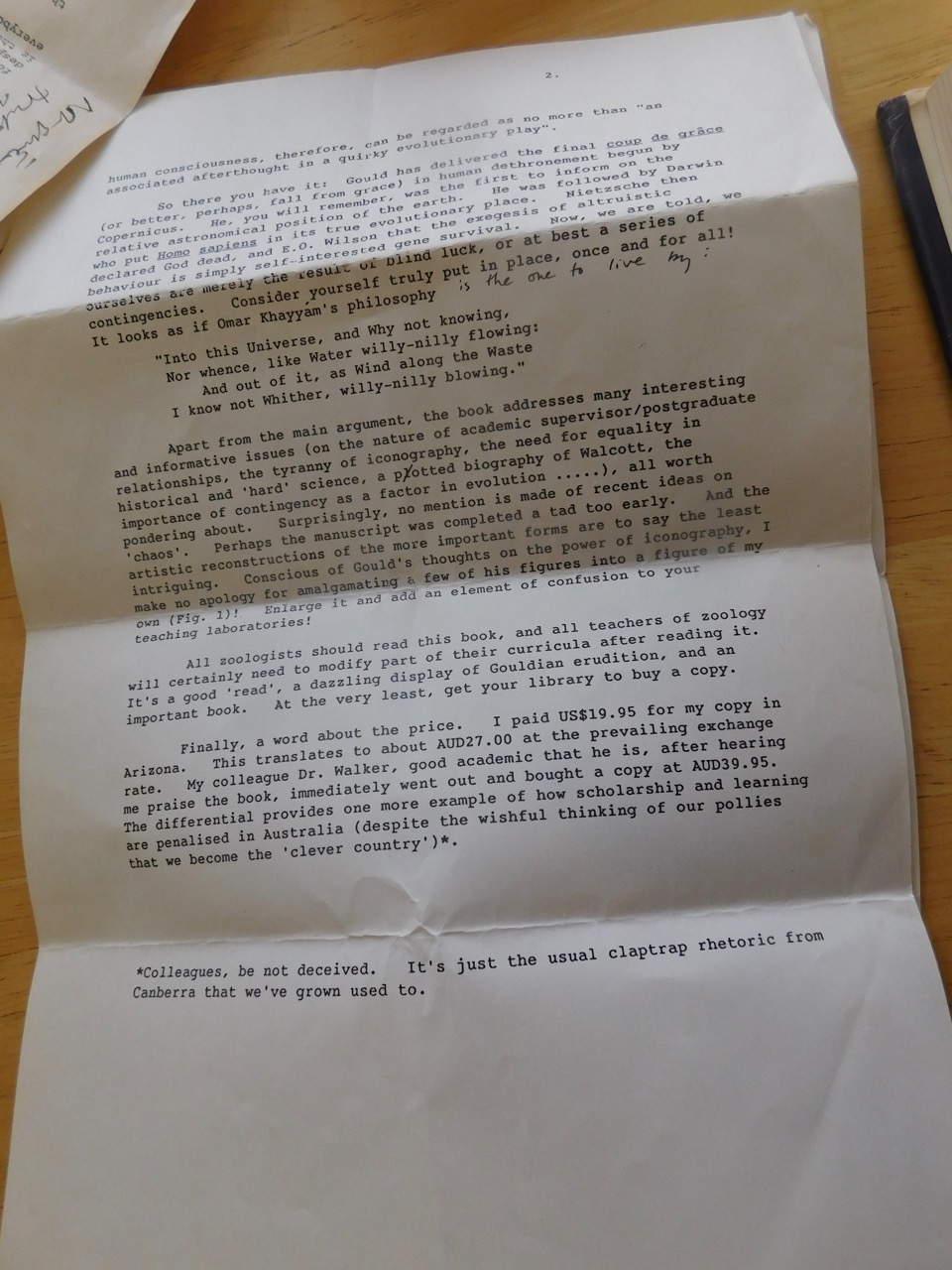 Bill Williams Wonderful Life Review b.jpg 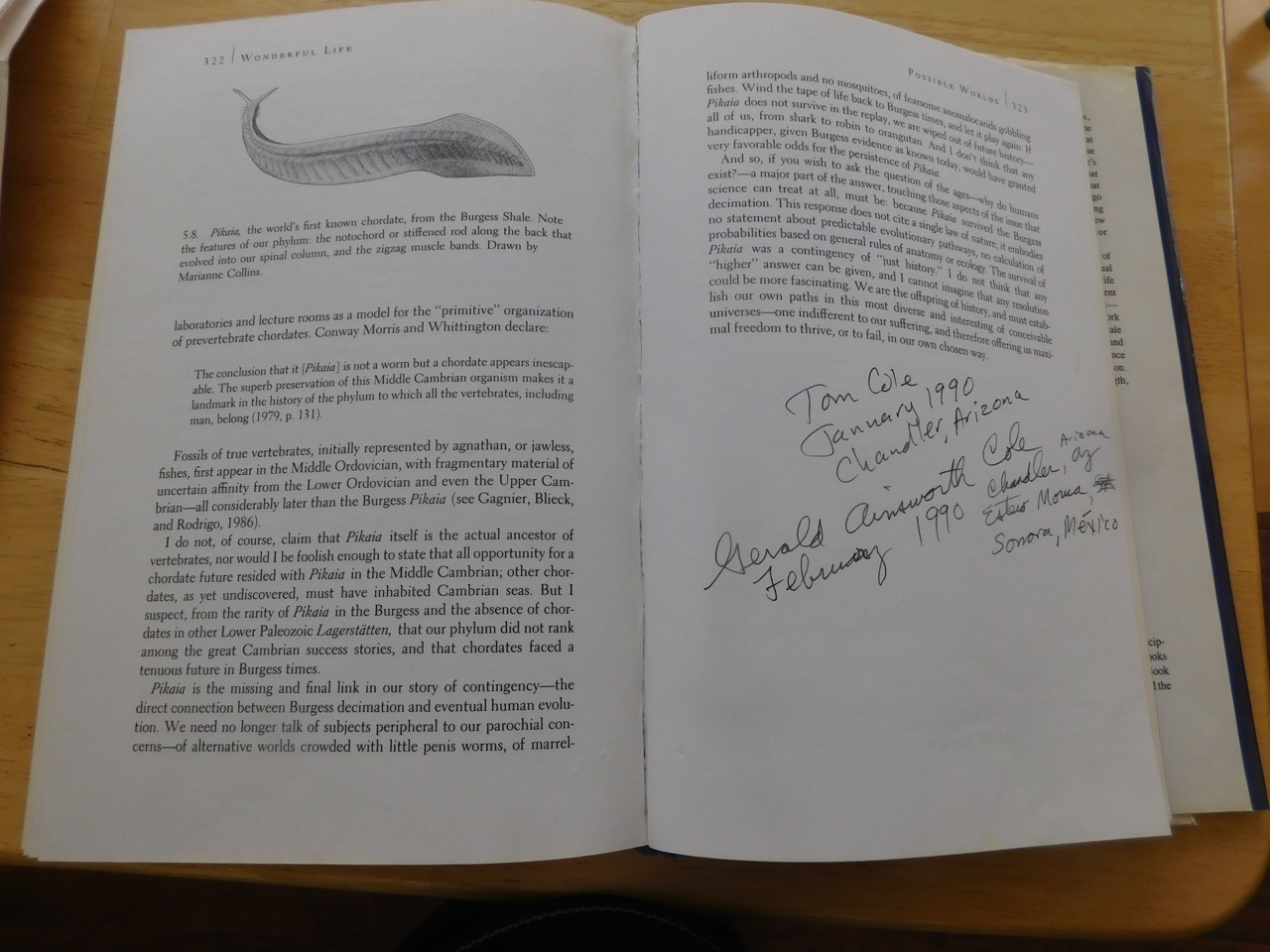 Wonderful Life Signed in the Back Dad and Tom.jpg 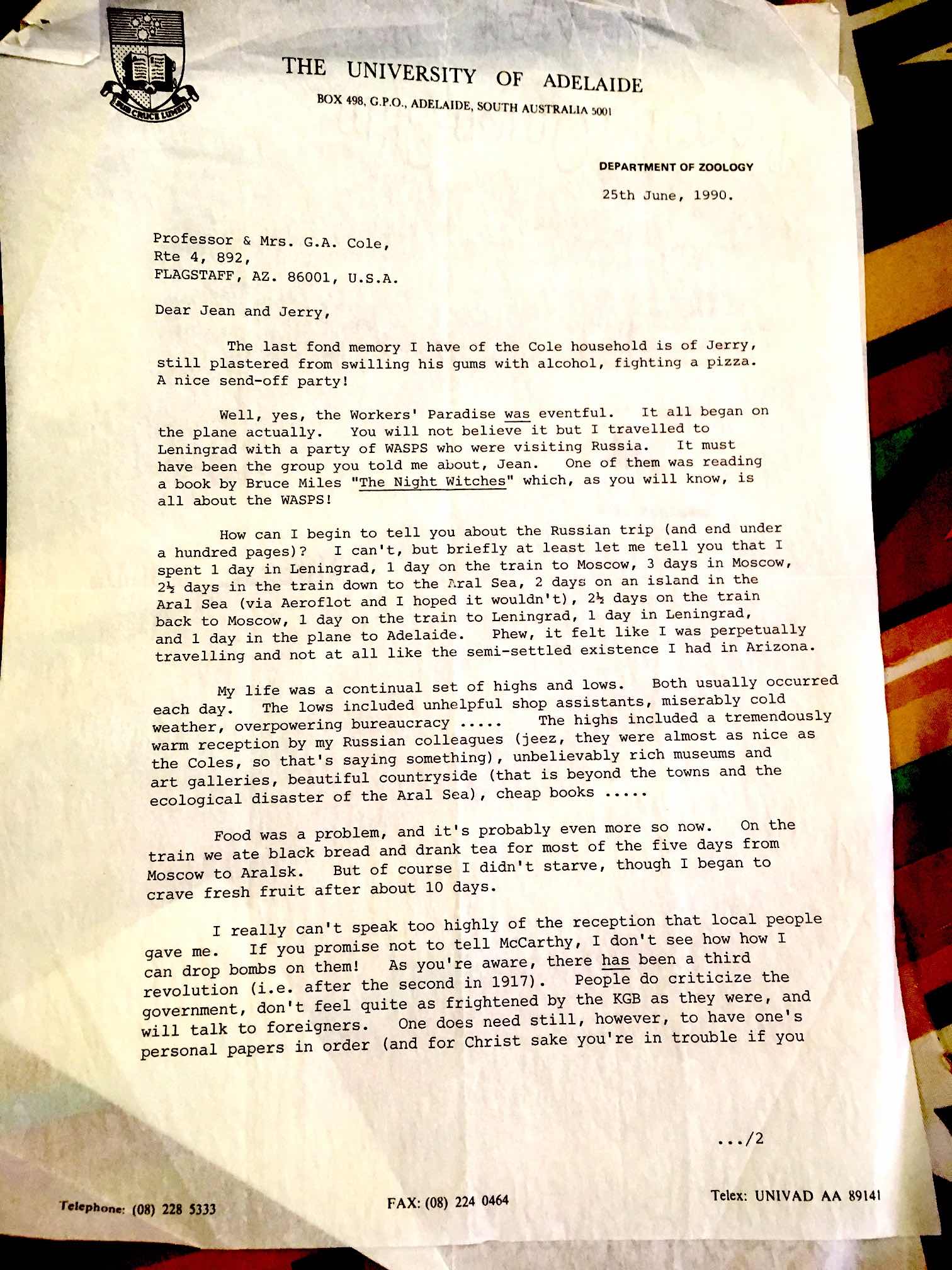 Bill Williams Letter to Mom and Dad June 1990a.jpg 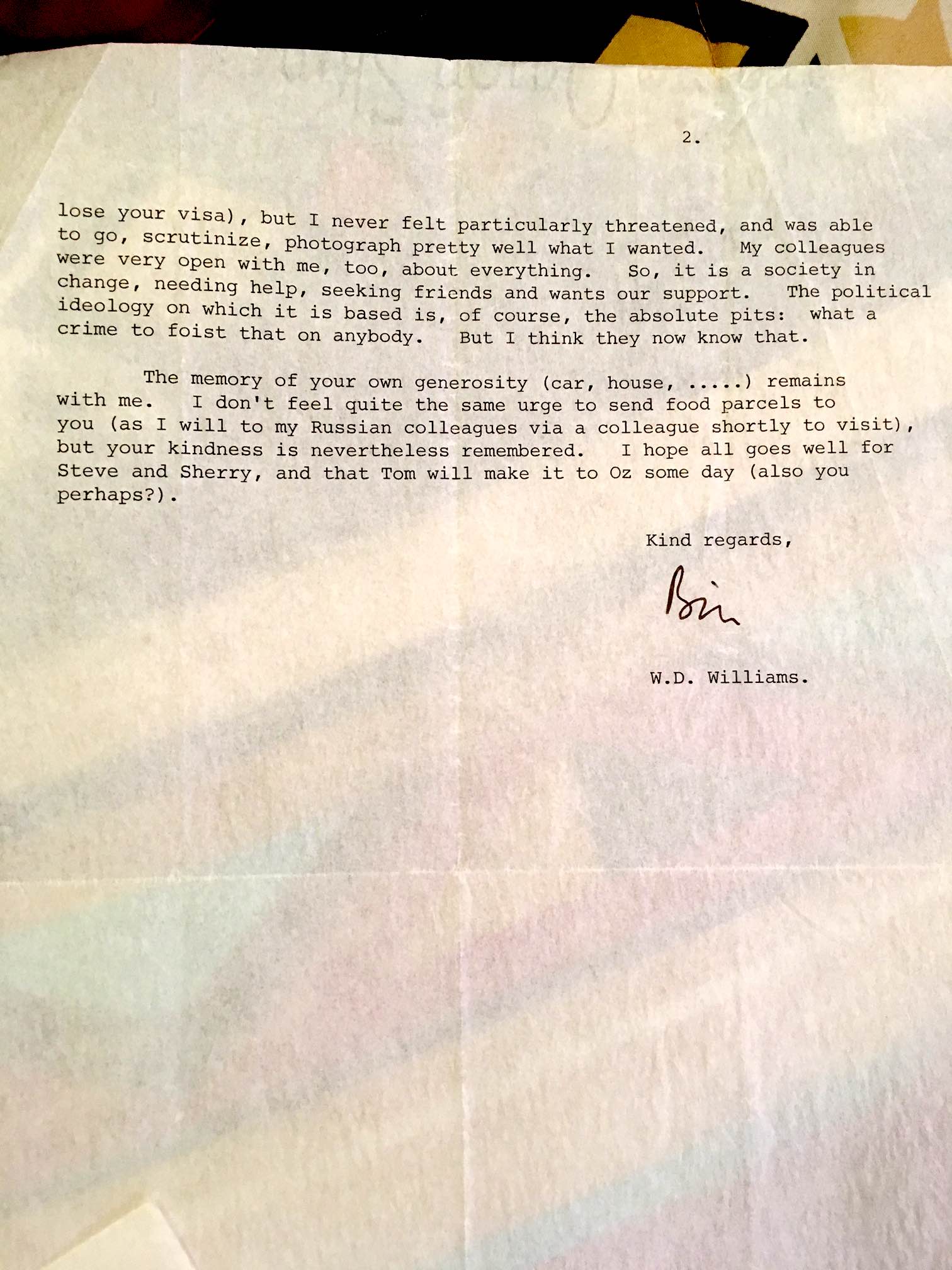 Bill Williams Letter to Mom and Dad June 1990b.jpg Here is the text that I OCRed: THE UNIVERSITY OF ADELAIDE BOX 498, G.P.O., ADELAIDE, SOUTH AUSTRALIA 5001 DEPARTMENT OF ZOOLOGY 25th June, 1990. Professor & Mrs. G.A. Cole, Rte 4, 892, FLAGSTAFF, AZ. 86001, U.S.A.
|
.jpeg)
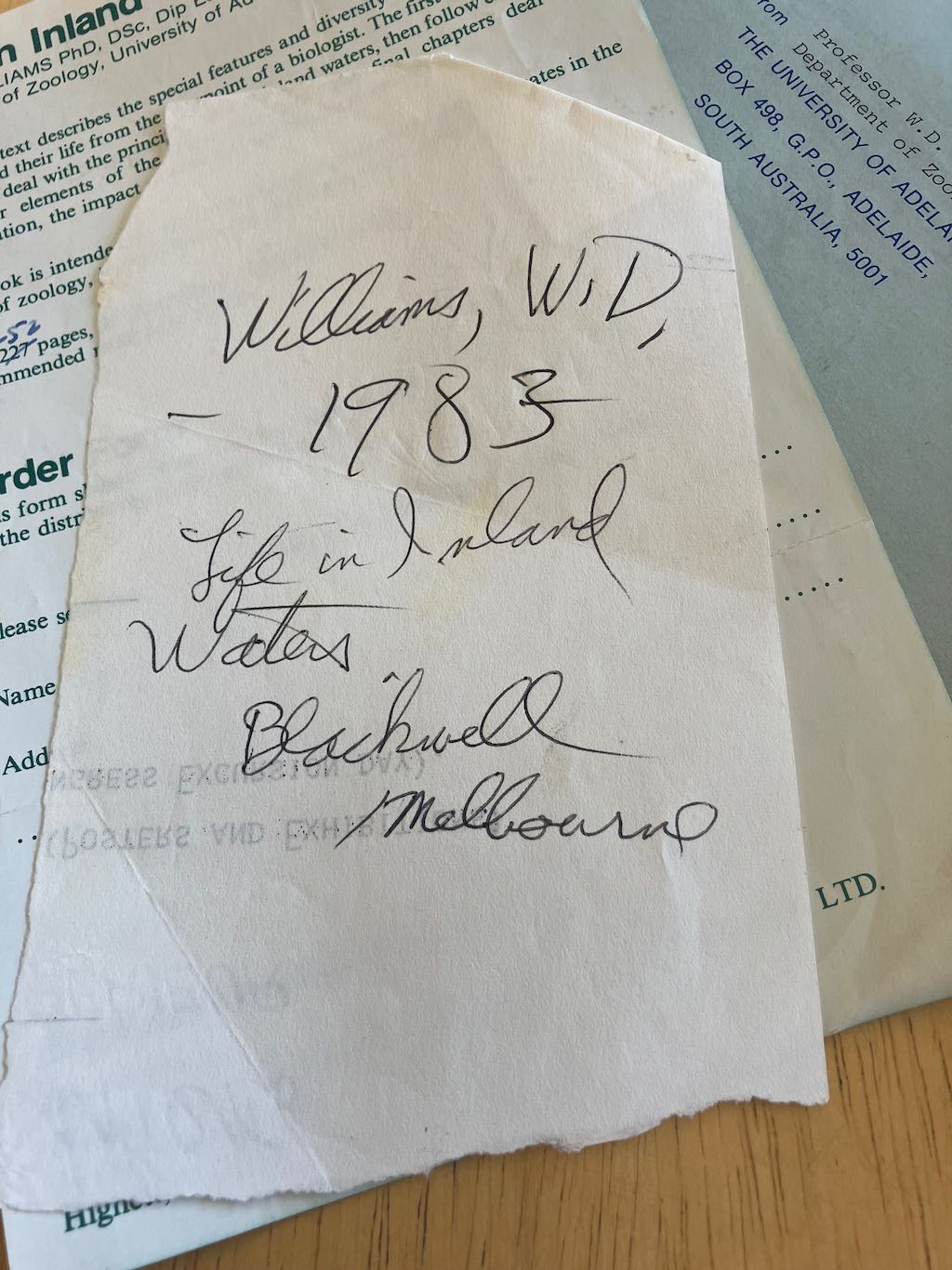
.jpeg)
.jpeg)
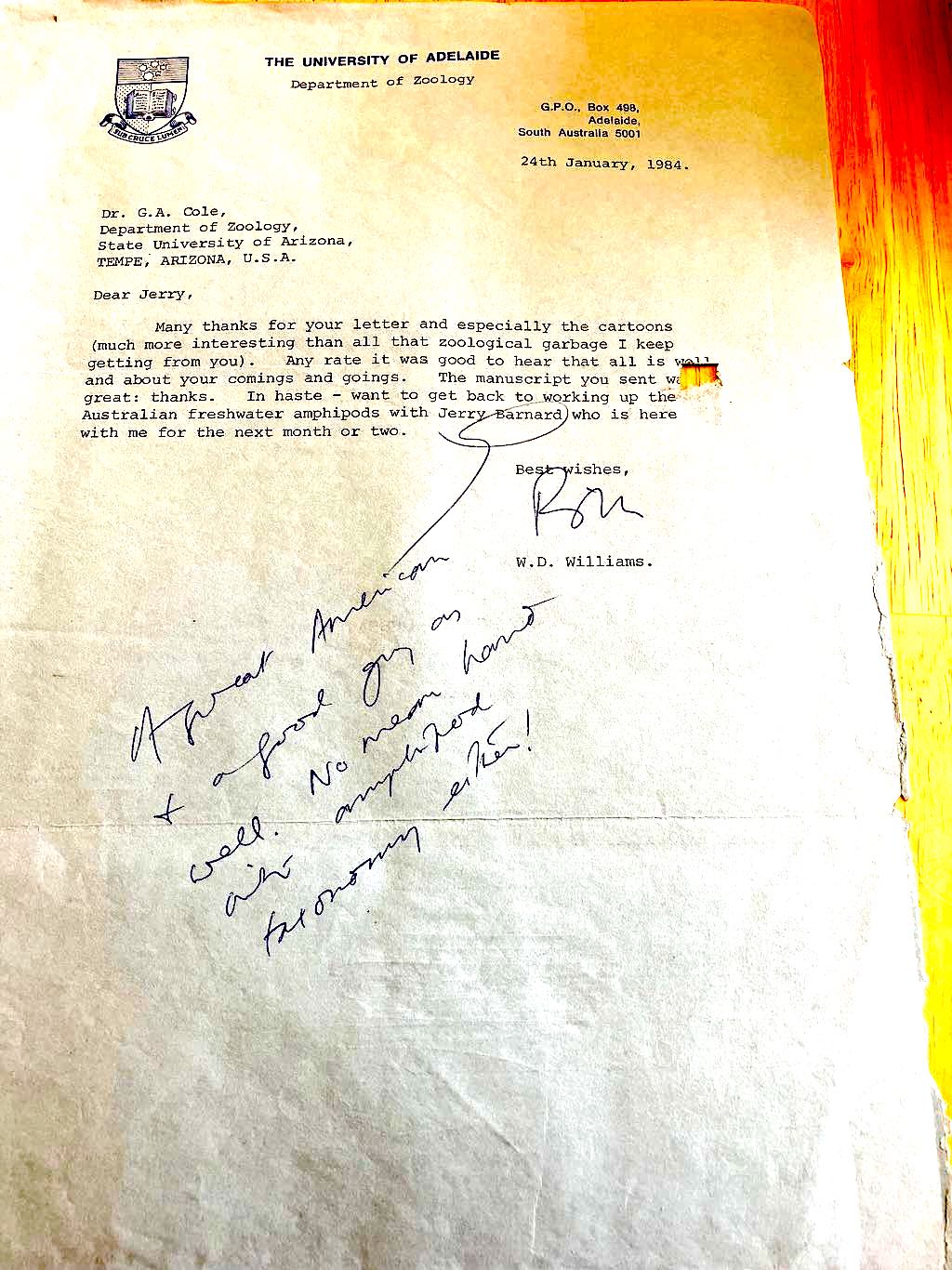
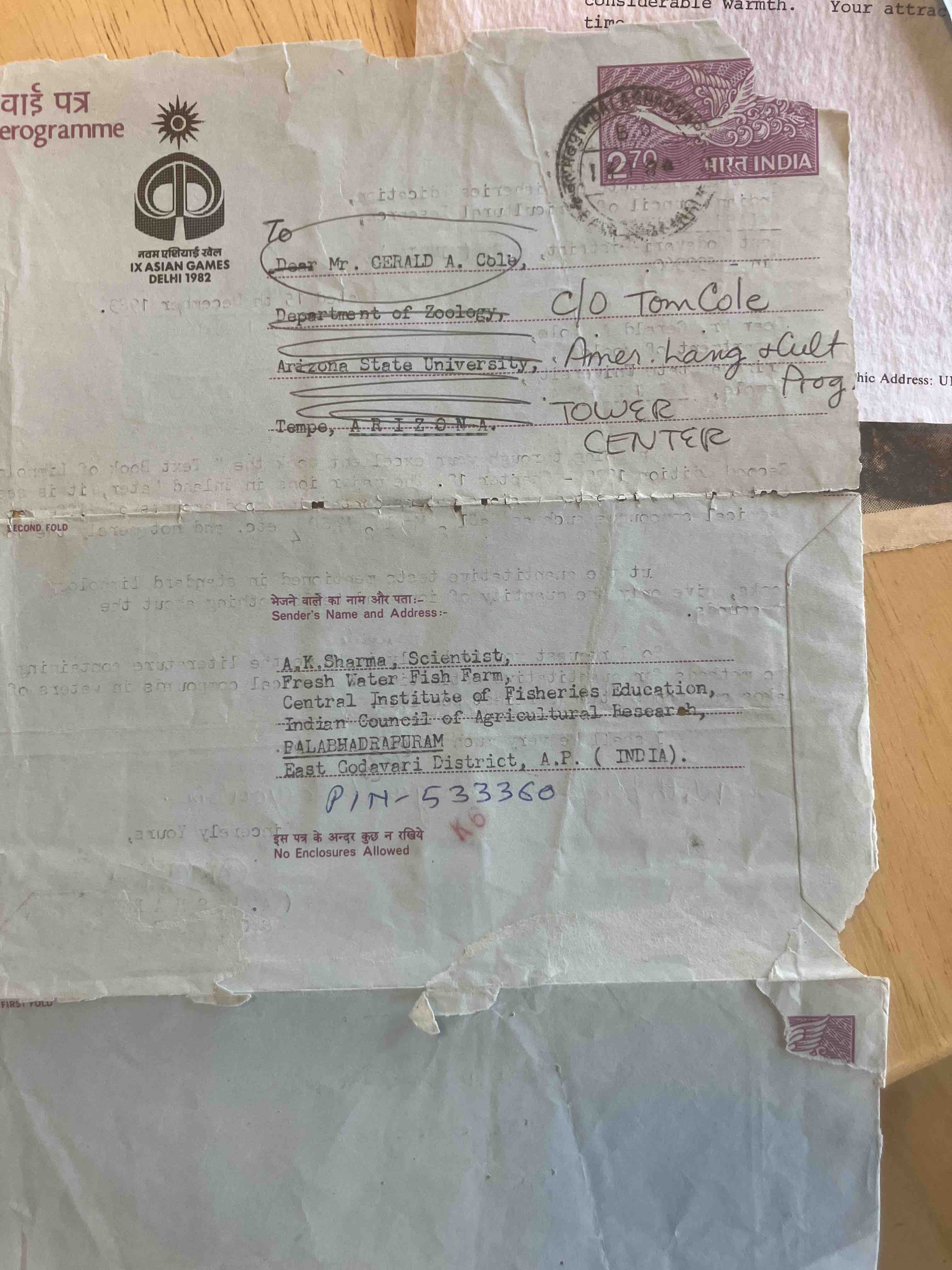

.jpeg)